1. You start to notice patchy hair loss
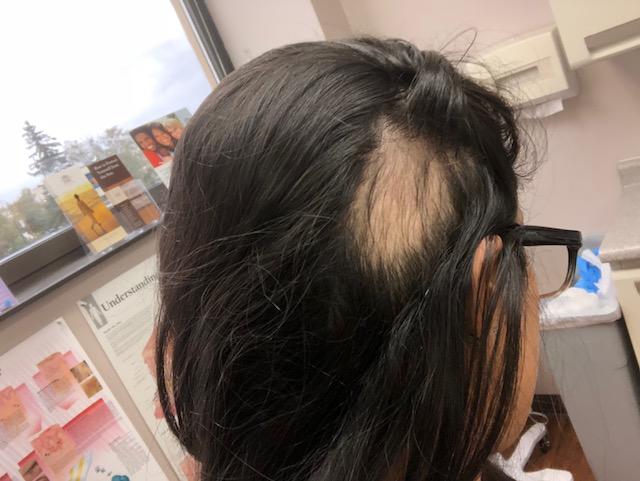
Image source: Reddit
Alopecia areata typically manifests as patchy hair loss, where the immune system mistakenly attacks hair follicles, leading to sudden hair loss in localized areas. These patches may merge or appear in multiple spots, causing irregular patterns of hair loss across the scalp or body.
2. There's gradual thinning of your hair
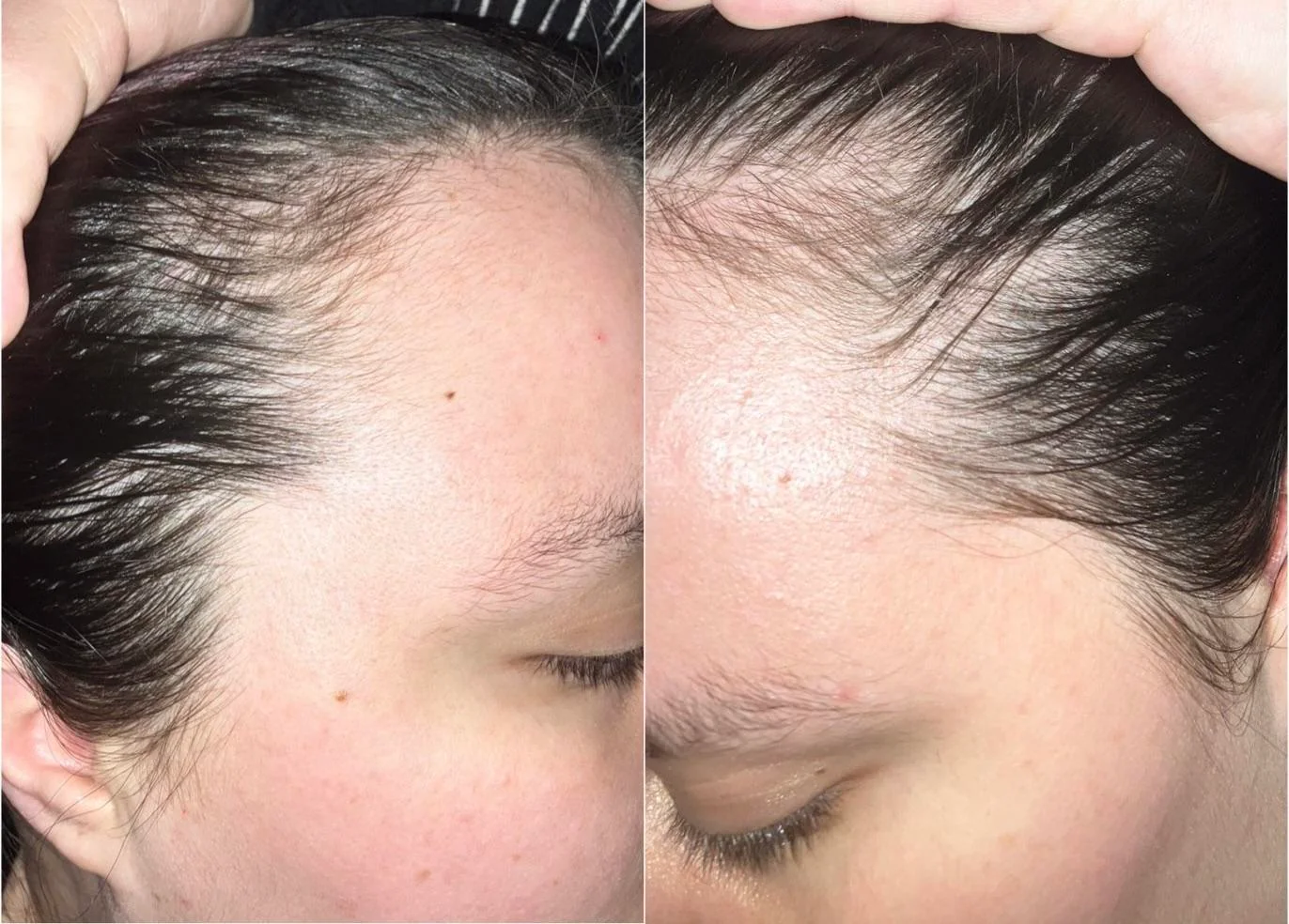
Image source: Reddit
Androgenetic alopecia, commonly known as male or female pattern baldness, often begins with a gradual thinning of hair. This type of alopecia is genetically predisposed and typically follows a predictable pattern of hair loss, starting with a receding hairline in men or widening part in women.
3. Hair loss happens suddenly
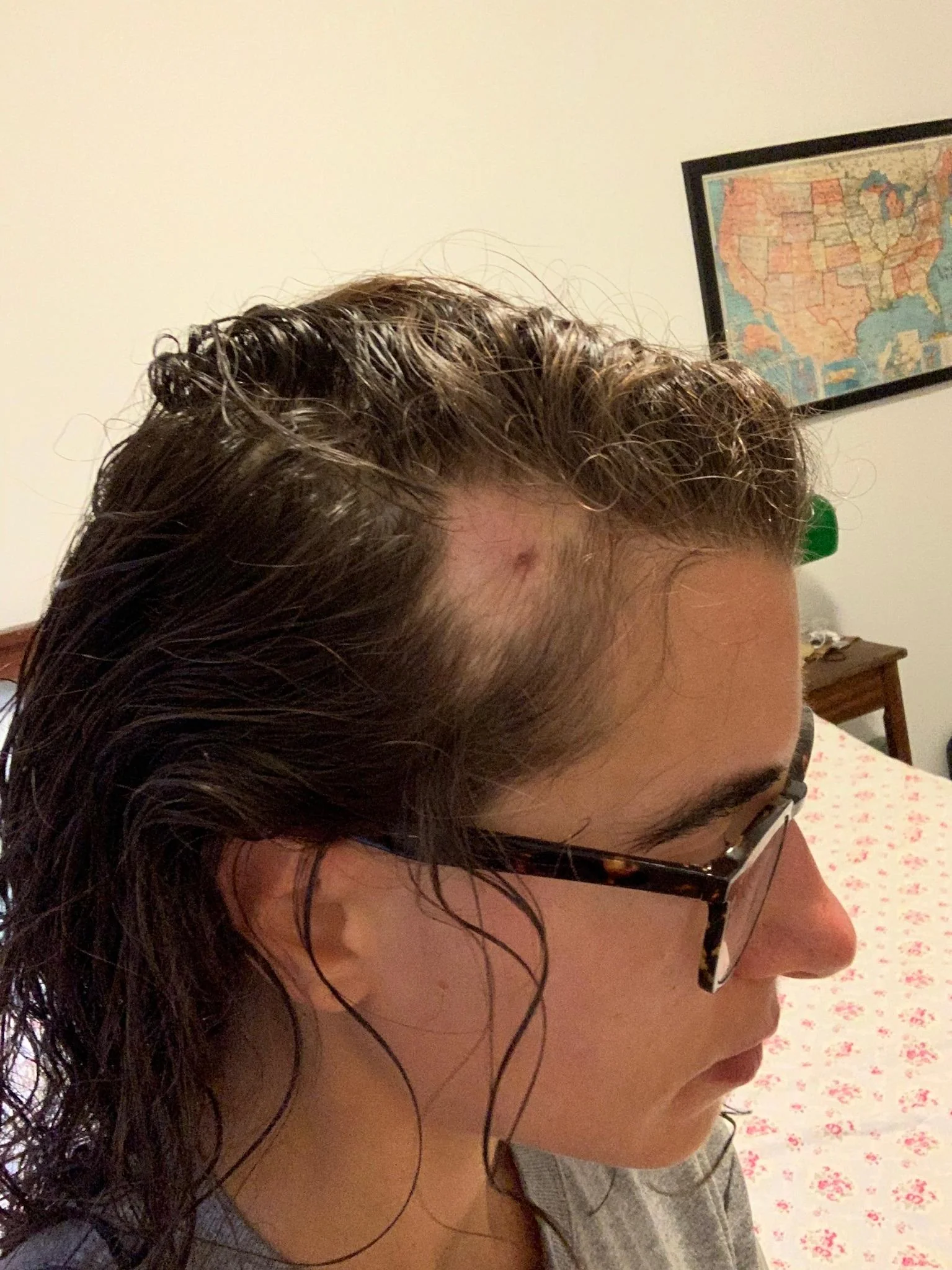
Image source: Reddit
Telogen effluvium is a temporary hair loss condition characterized by sudden shedding of hair due to stressors such as childbirth, illness, surgery, or extreme weight loss. This type of hair loss occurs when a significant number of hair follicles enter the resting (telogen) phase simultaneously, leading to noticeable shedding a few months later.
4. A number of small bald spots
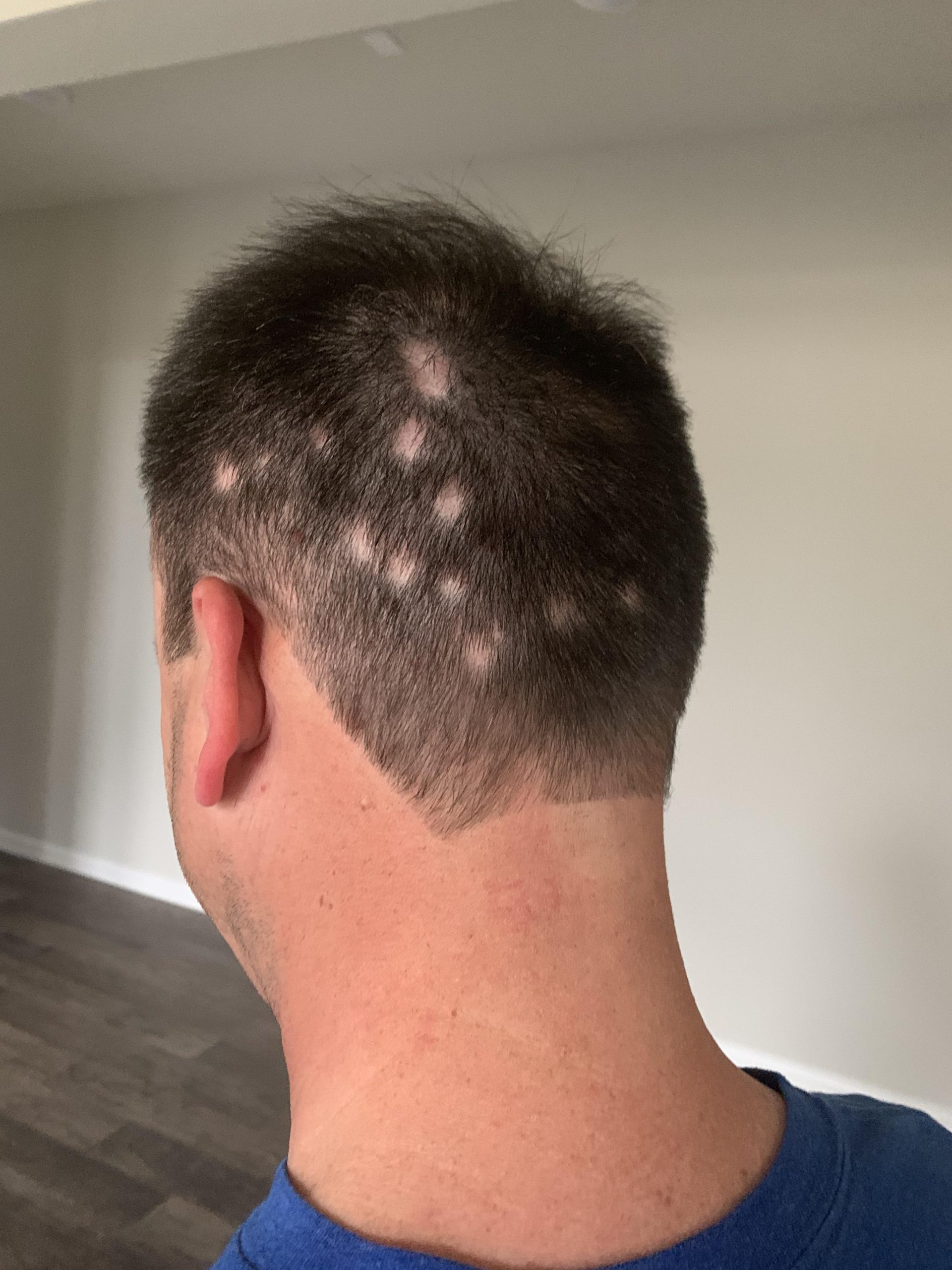
Image source: Reddit
Alopecia areata often presents as well-defined bald spots on the scalp, which can range in size from small coin-sized patches to larger areas of hair loss. These bald spots may be smooth or slightly rough to the touch, depending on the presence of broken hairs.
5. You can easily see your scalp
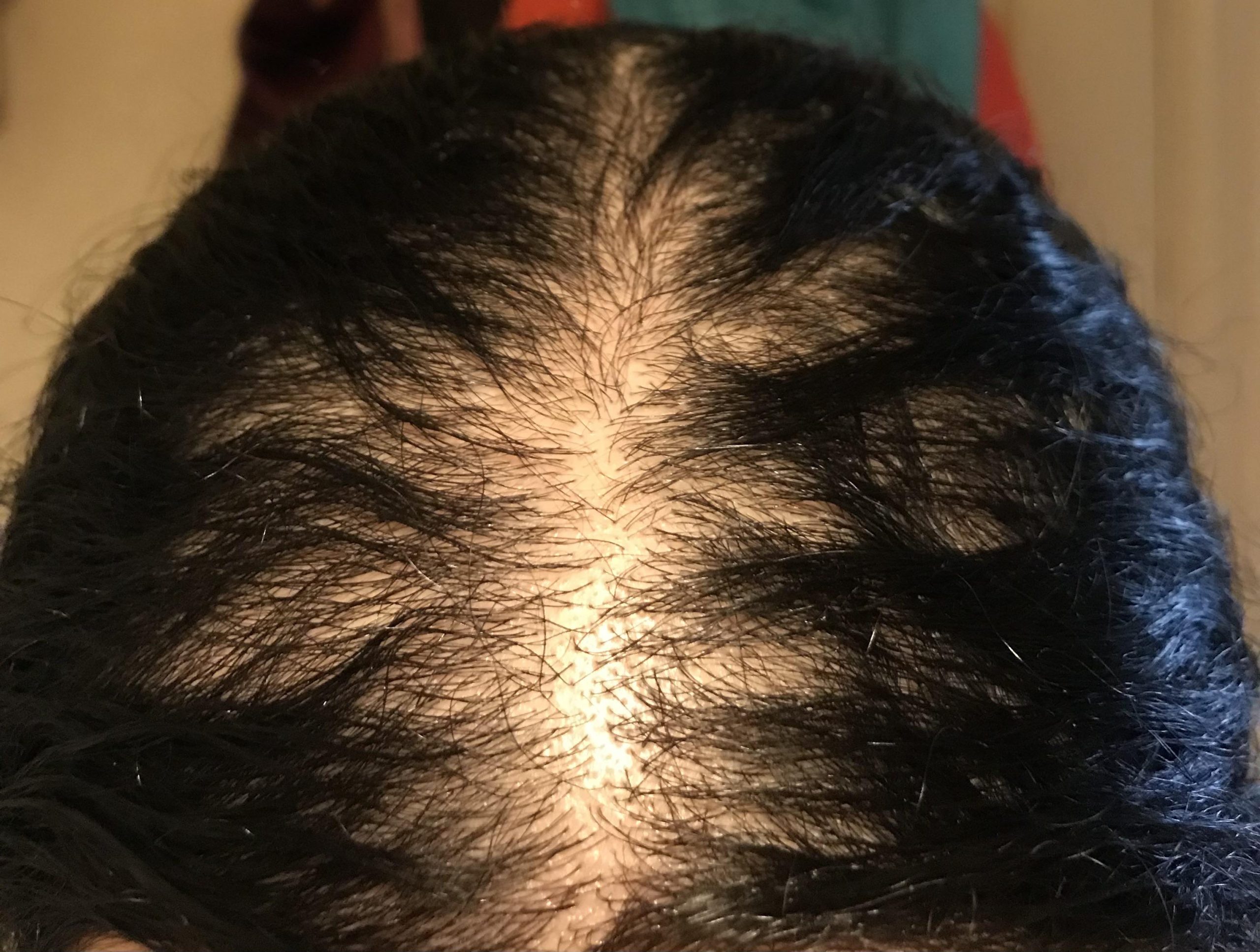
Image source: Reddit
As hair follicles miniaturize and hair density decreases in androgenetic alopecia, more of the scalp becomes visible, especially under bright light or when hair is styled in certain ways. This increased visibility of the scalp can be distressing for individuals experiencing progressive hair loss.
6. Your hair breaks off
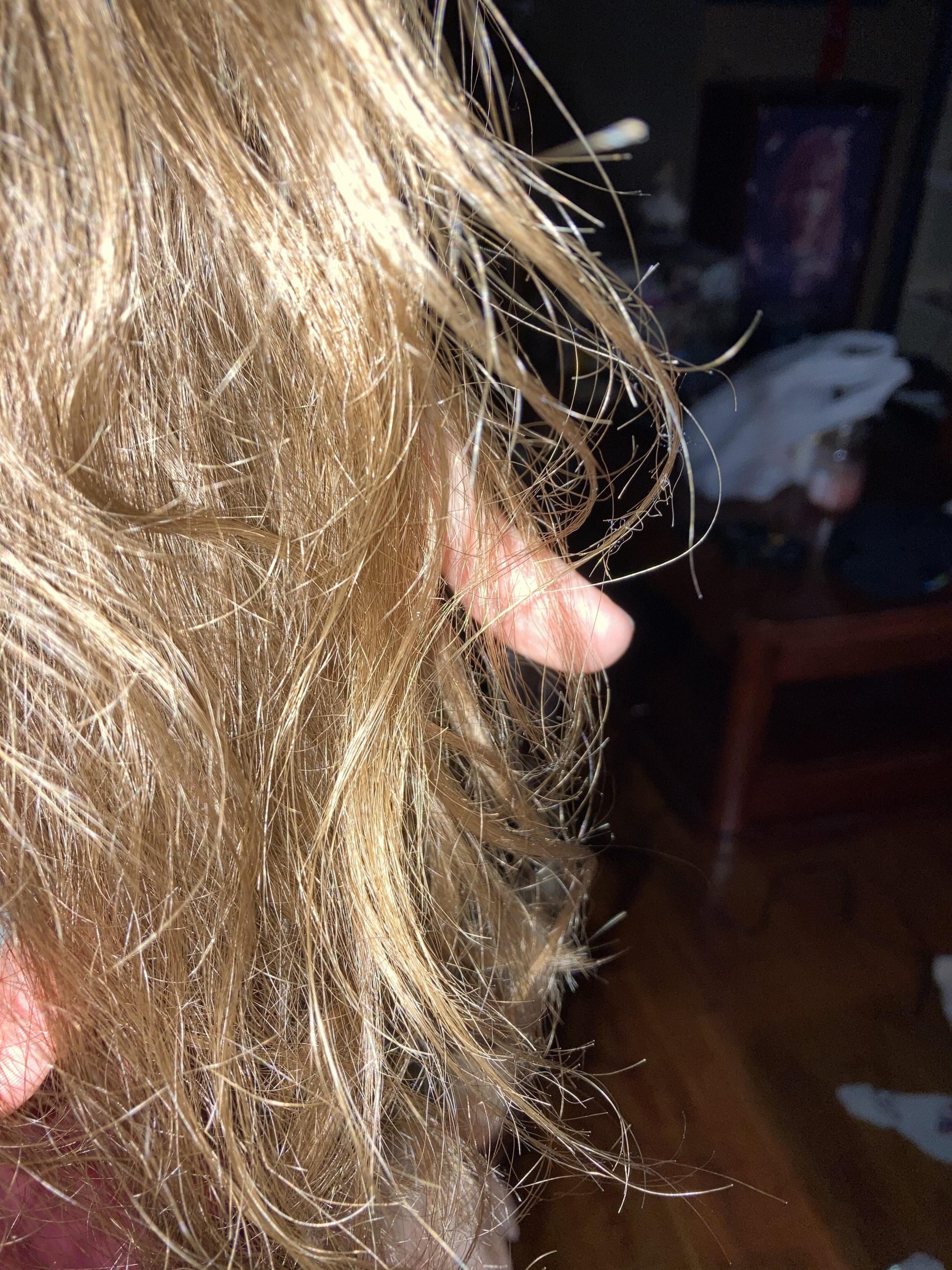
Image source: Reddit
Hair breakage can occur due to a variety of factors, including excessive heat styling, chemical treatments, over-brushing, or poor hair care practices. Weak, brittle hair shafts are more prone to breakage, resulting in shorter, uneven strands and an overall thinner appearance of the hair.
7. There is excessive shedding
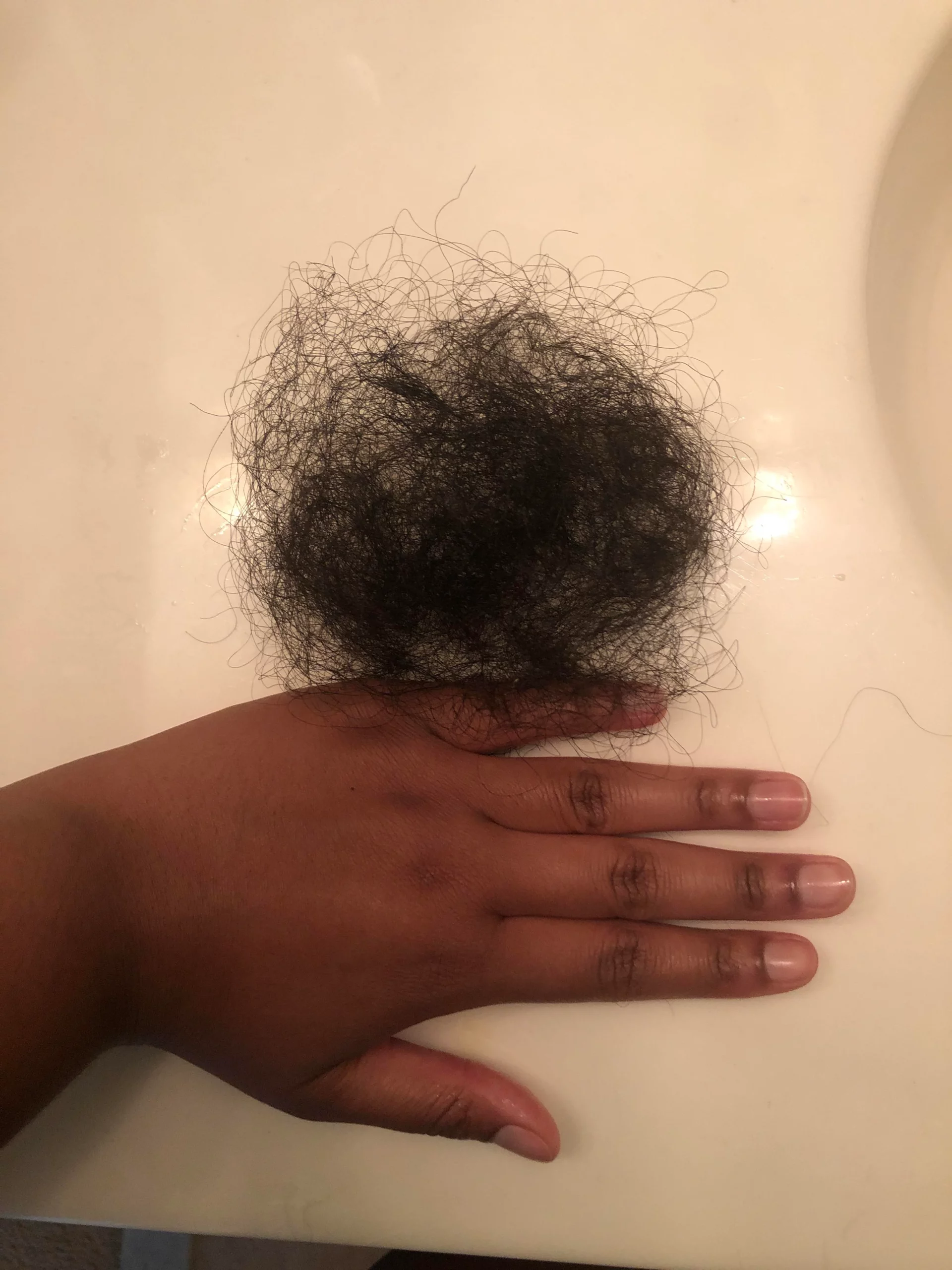
Image source: Reddit
Chronic telogen effluvium is characterized by persistent, excessive shedding of hair over an extended period. While shedding is a normal part of the hair growth cycle, individuals with telogen effluvium may experience prolonged shedding, resulting in noticeable thinning of the hair over time.
8. You see and feel a change in hair texture
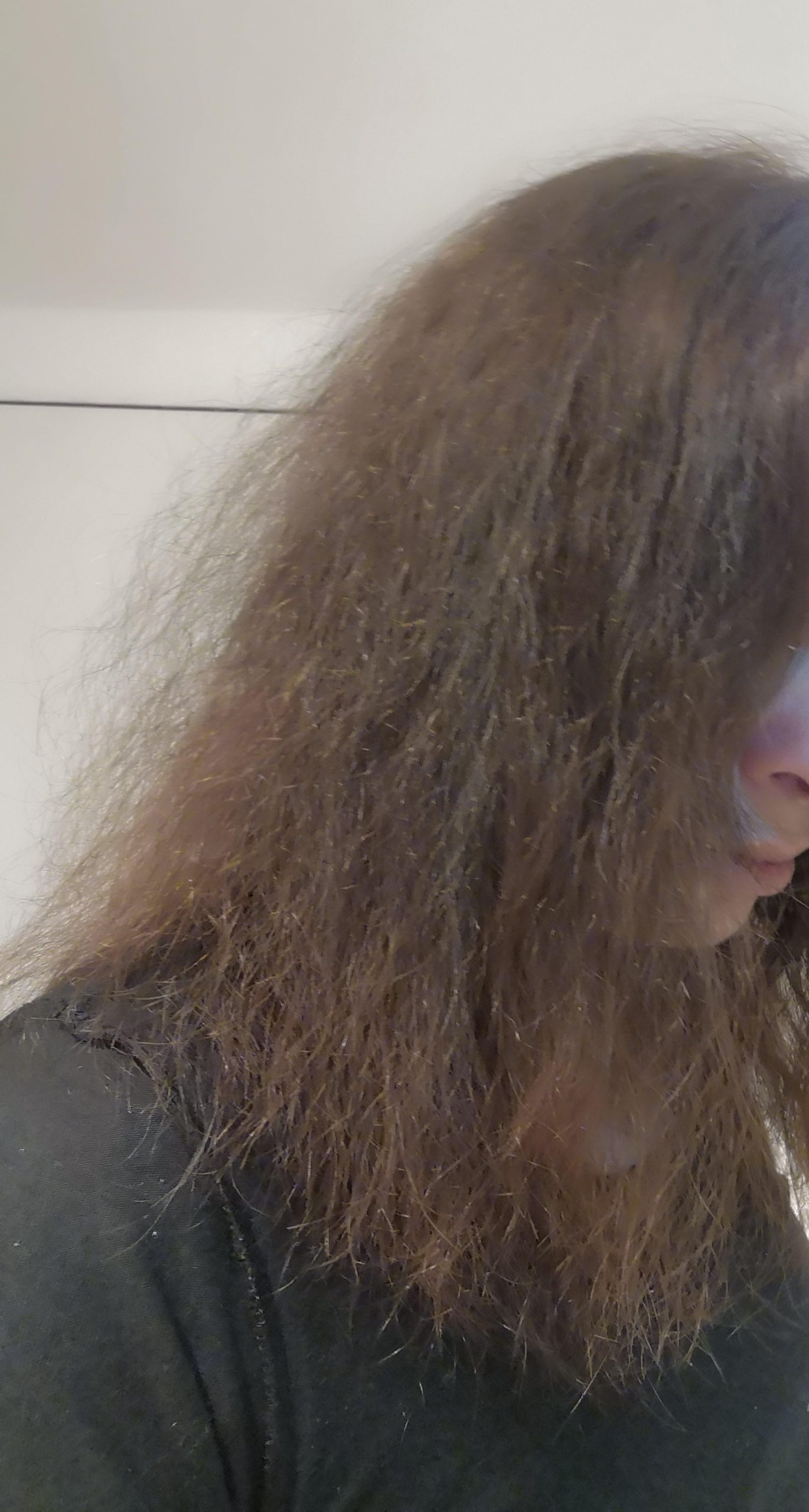
Image source: Reddit
Changes in hair texture can be caused by hormonal imbalances, nutritional deficiencies, or damage to the hair shafts. Hair may become finer, coarser, more brittle, or lose its natural shine and elasticity, making it more difficult to style and manage. As well as looking different, it also feels different.
9. You experience itching or irritation
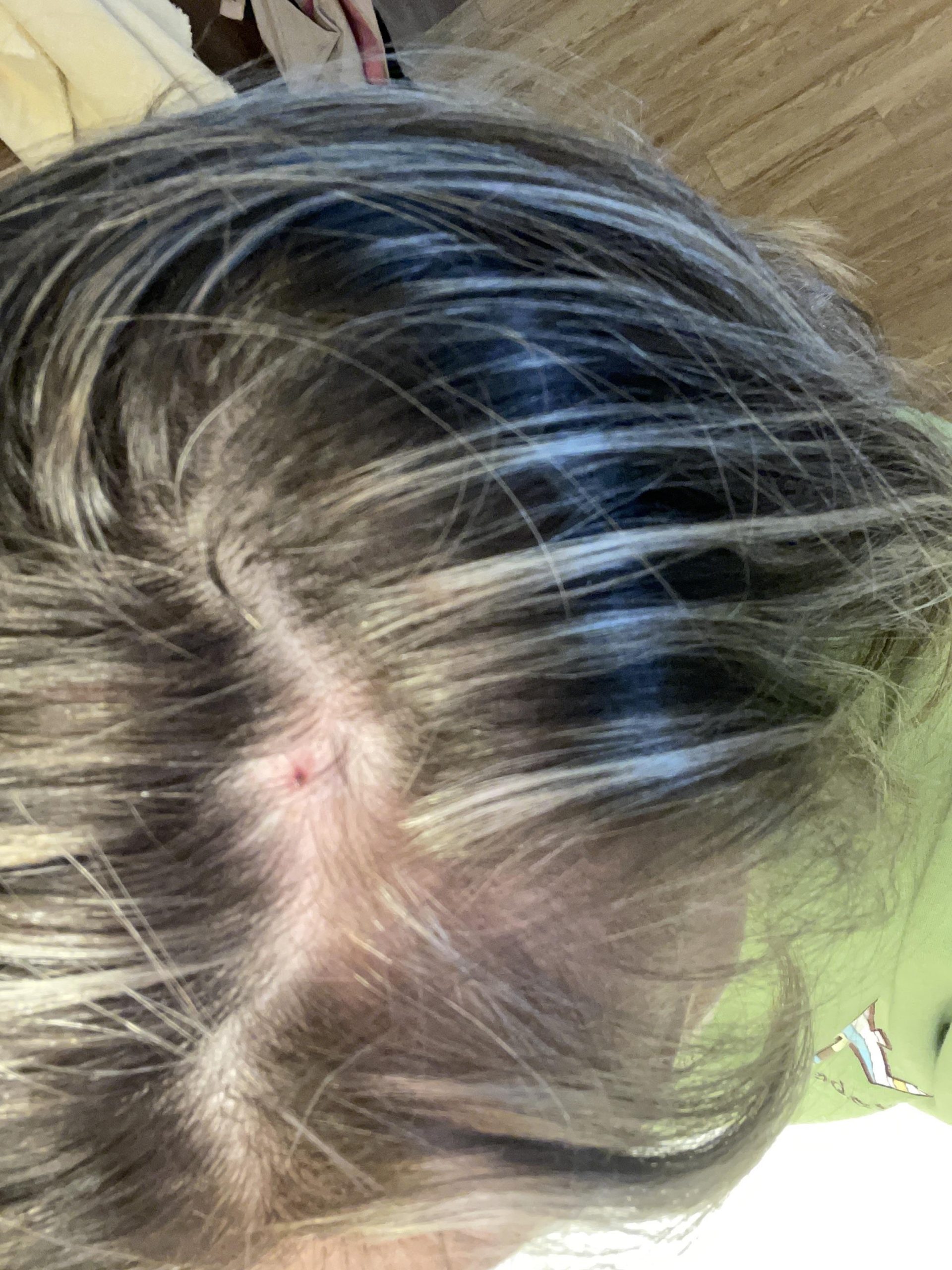
Image source: Reddit
Scalp itching and irritation can be symptoms of underlying scalp conditions such as seborrheic dermatitis, psoriasis, or fungal infections. Persistent scratching can damage the scalp and hair follicles, exacerbating hair loss and inflammation which can be very uncomfortable.
10. Your scalp becomes very sensitive

Image source: Reddit
Scalp sensitivity may be heightened in individuals with inflammatory scalp conditions or autoimmune disorders like alopecia areata. Increased sensitivity to touch, heat, or hair products can contribute to discomfort and may necessitate gentle hair care routines and scalp treatments.
11. You have inflammation or redness
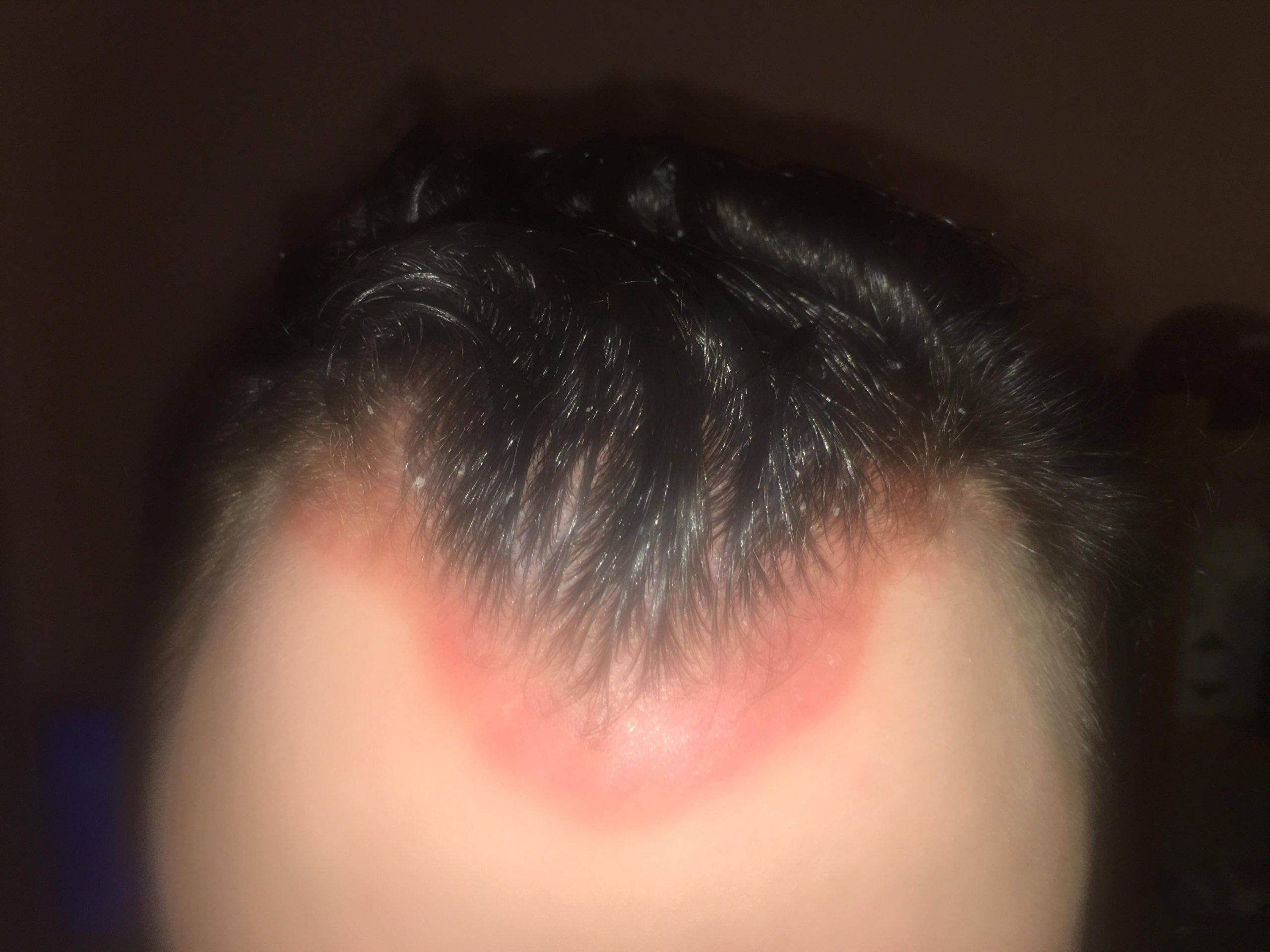
Image source: Reddit
Inflammatory responses in the scalp can lead to redness, swelling, and tenderness, signalling an immune system reaction against hair follicles. Inflammatory scalp conditions such as folliculitis or dermatitis may contribute to hair loss and require medical intervention for proper management.
12. You notice changes in your nails

Image source: Reddit
Nail changes associated with alopecia may include pitting, ridges, discoloration, or brittleness. These nail abnormalities can result from autoimmune processes affecting both the hair follicles and nail matrix, warranting evaluation by a dermatologist or rheumatologist.
13. You have thinning eyebrows or eyelashes
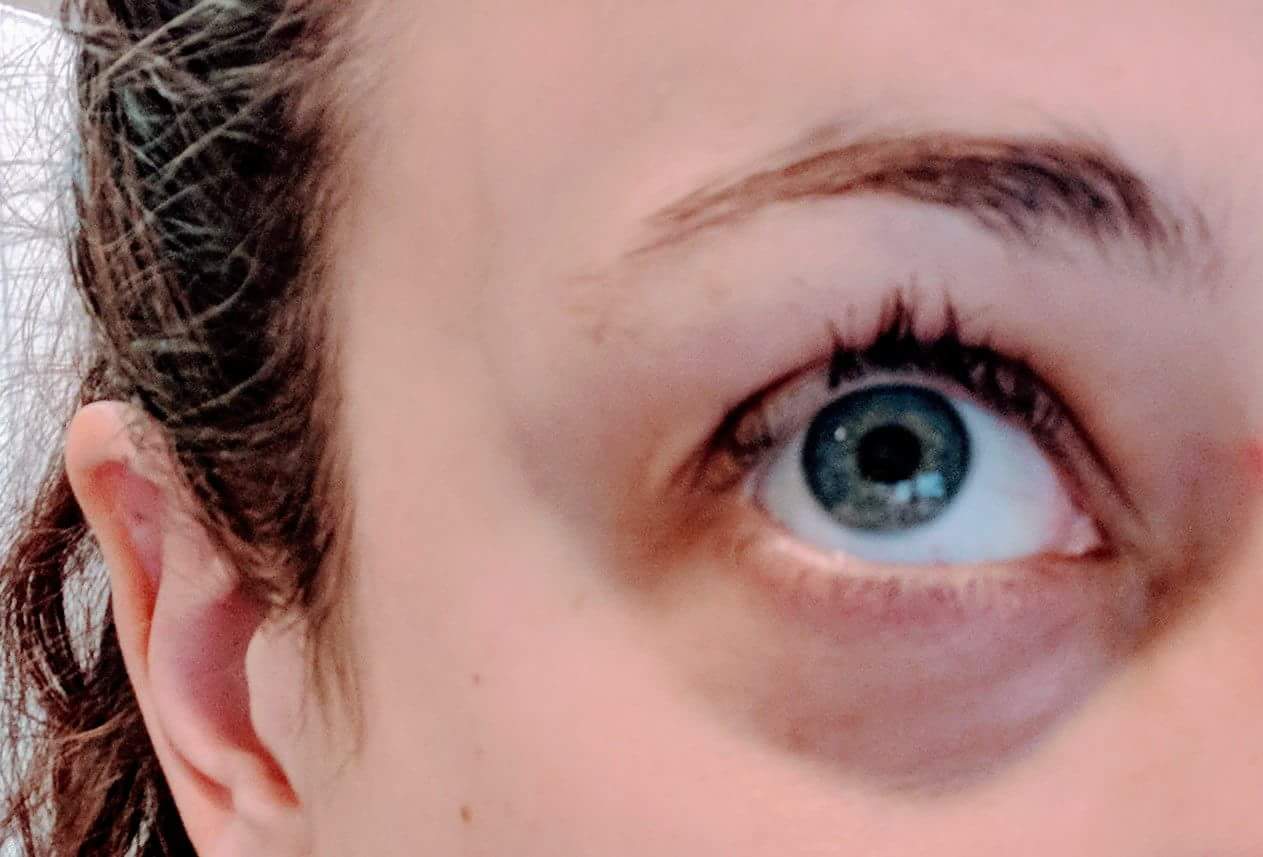
Image source: Reddit
Alopecia areata can affect not only scalp hair but also eyebrows, eyelashes, and body hair. Thinning or loss of eyebrows and eyelashes can alter facial appearance and may require cosmetic interventions such as microblading or eyelash extensions for aesthetic enhancement.
14. Cicatricial alopecia signs
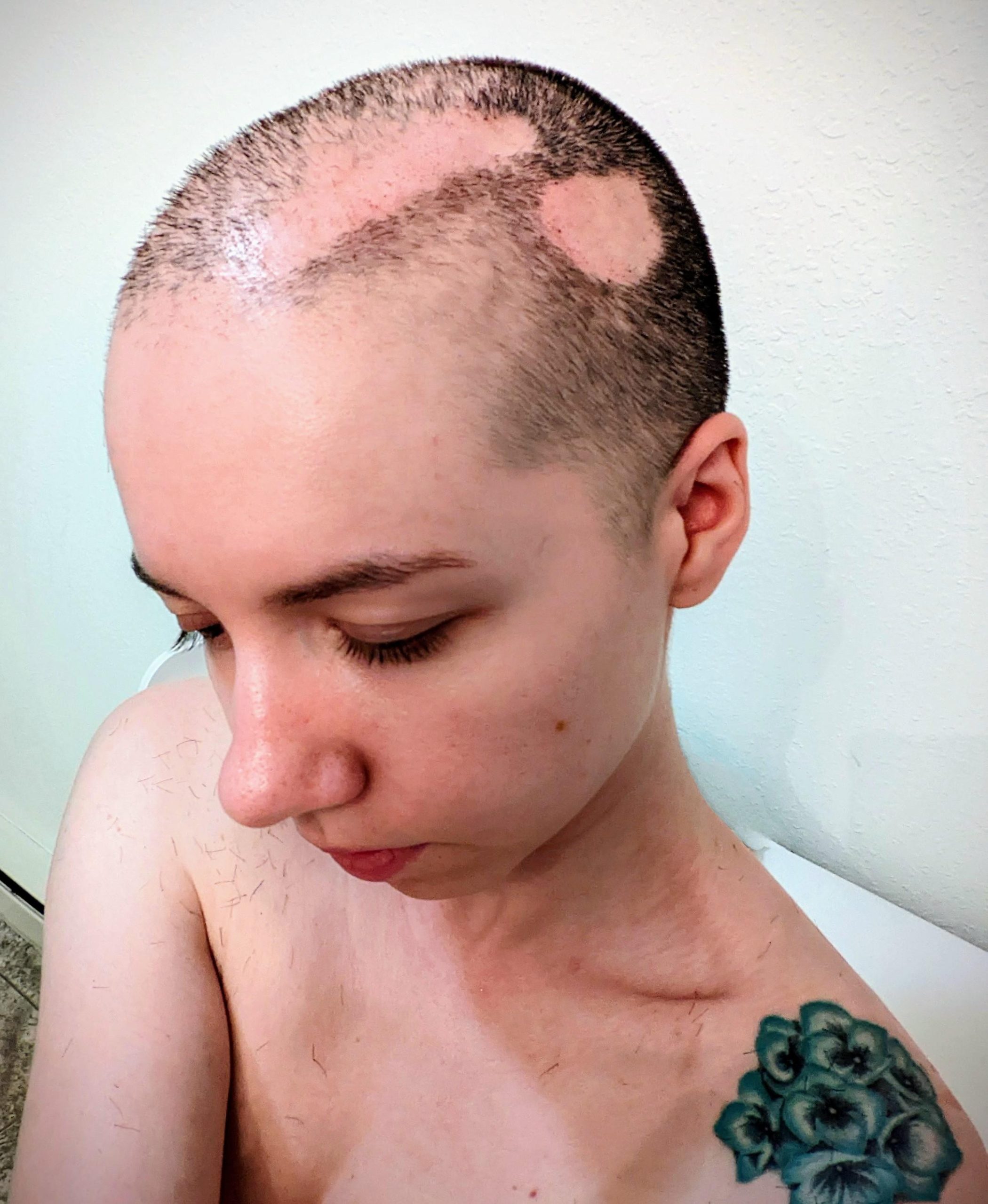
Image source: Reddit
Cicatricial alopecia refers to a group of rare hair loss disorders characterized by irreversible scarring of the scalp. Symptoms may include persistent scalp pain, itching, burning, and the development of keloids or hypertrophic scars in affected areas.
15. Localized hair loss in small round patches
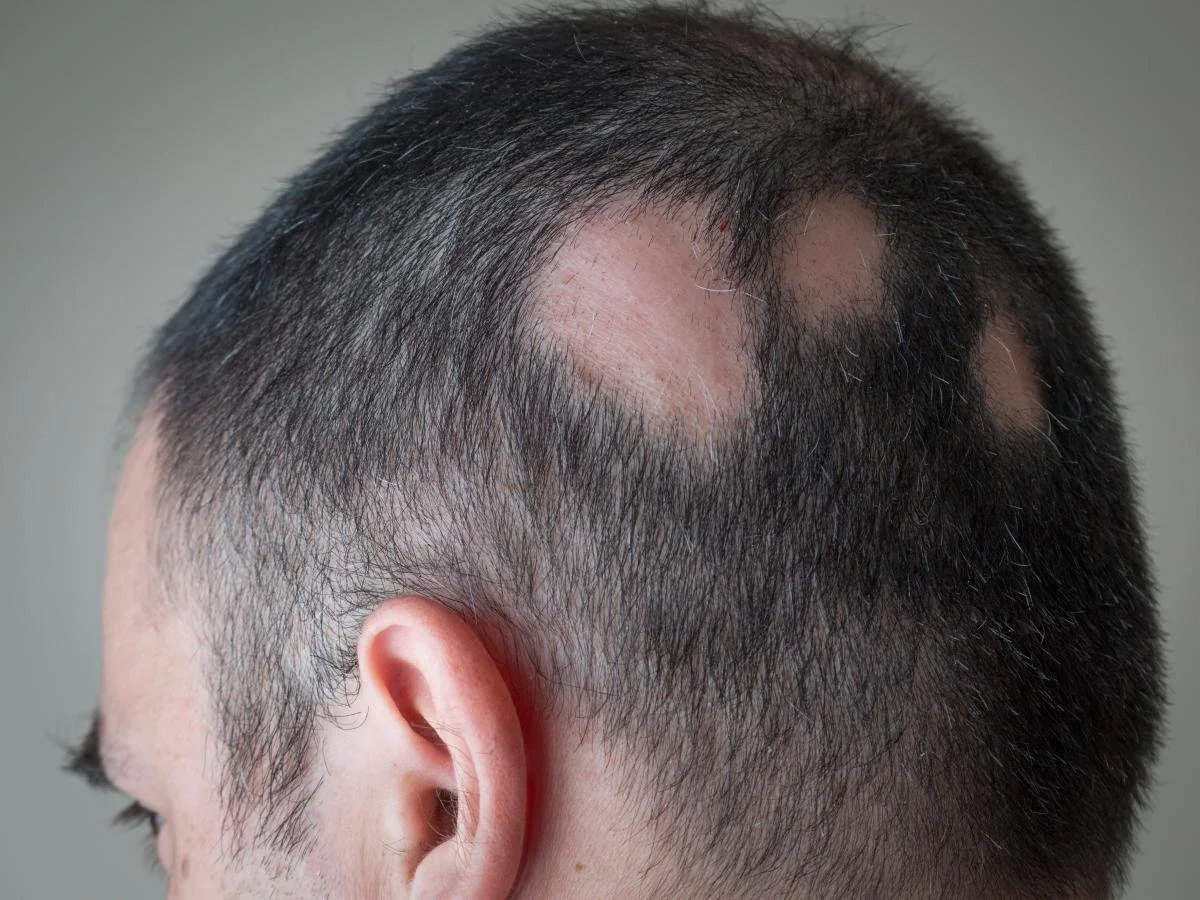
Image source: Reddit
Different types of alopecia present with characteristic patterns of hair loss, ranging from small, circular patches in alopecia areata to diffuse thinning in androgenetic alopecia. Understanding the pattern and distribution of hair loss can aid in diagnosing the underlying cause and determining appropriate treatment options.
16. Excessive hair shedding during washing
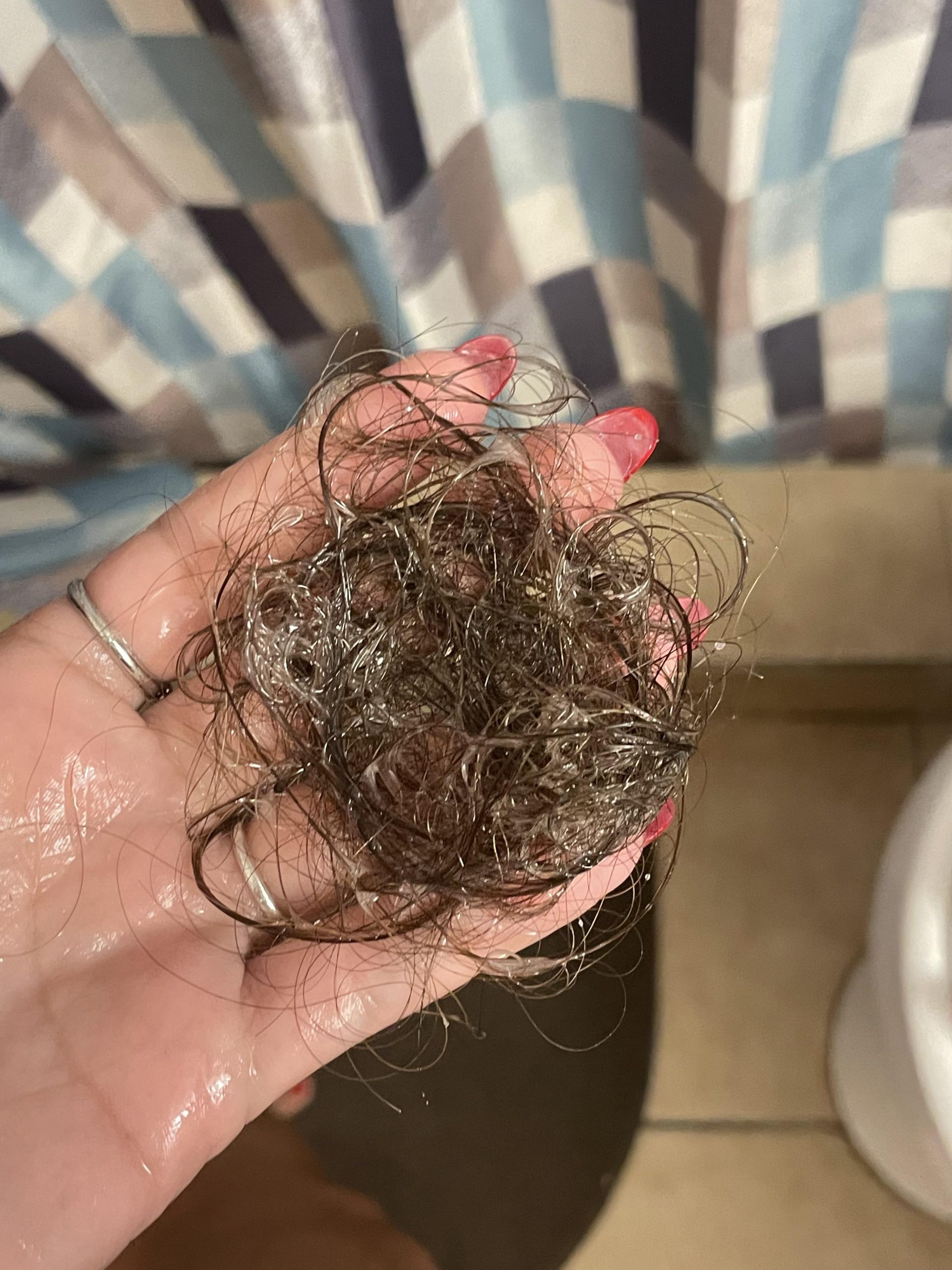
Image source: Reddit
Experiencing significant hair shedding during shampooing or combing can be distressing and may indicate an underlying hair loss condition or scalp disorder. Gentle hair care practices and the use of nourishing hair products can help minimize breakage and shedding.
17. Family history - it's genetic
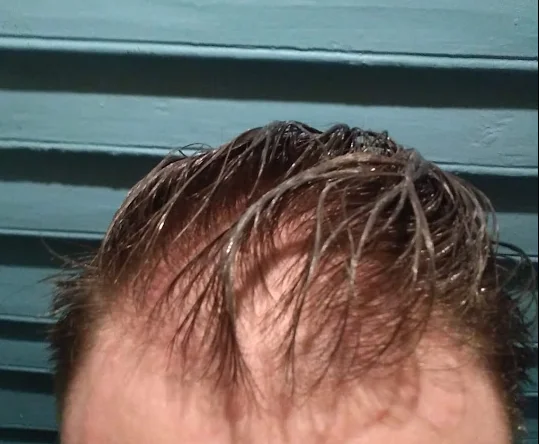
Image source: Reddit
Genetic predisposition plays a significant role in many forms of alopecia, including androgenetic alopecia, alopecia areata, and various autoimmune hair loss disorders. A family history of hair loss can increase an individual's risk of developing similar conditions and may influence treatment decisions.
18. Stress triggers

Image source: Reddit
Psychological stressors can trigger or exacerbate hair loss by disrupting the normal hair growth cycle and inducing telogen effluvium. Stress management techniques such as mindfulness, meditation, and relaxation exercises can help mitigate the effects of stress on hair health.
19. Autoimmune symptoms such as lupus
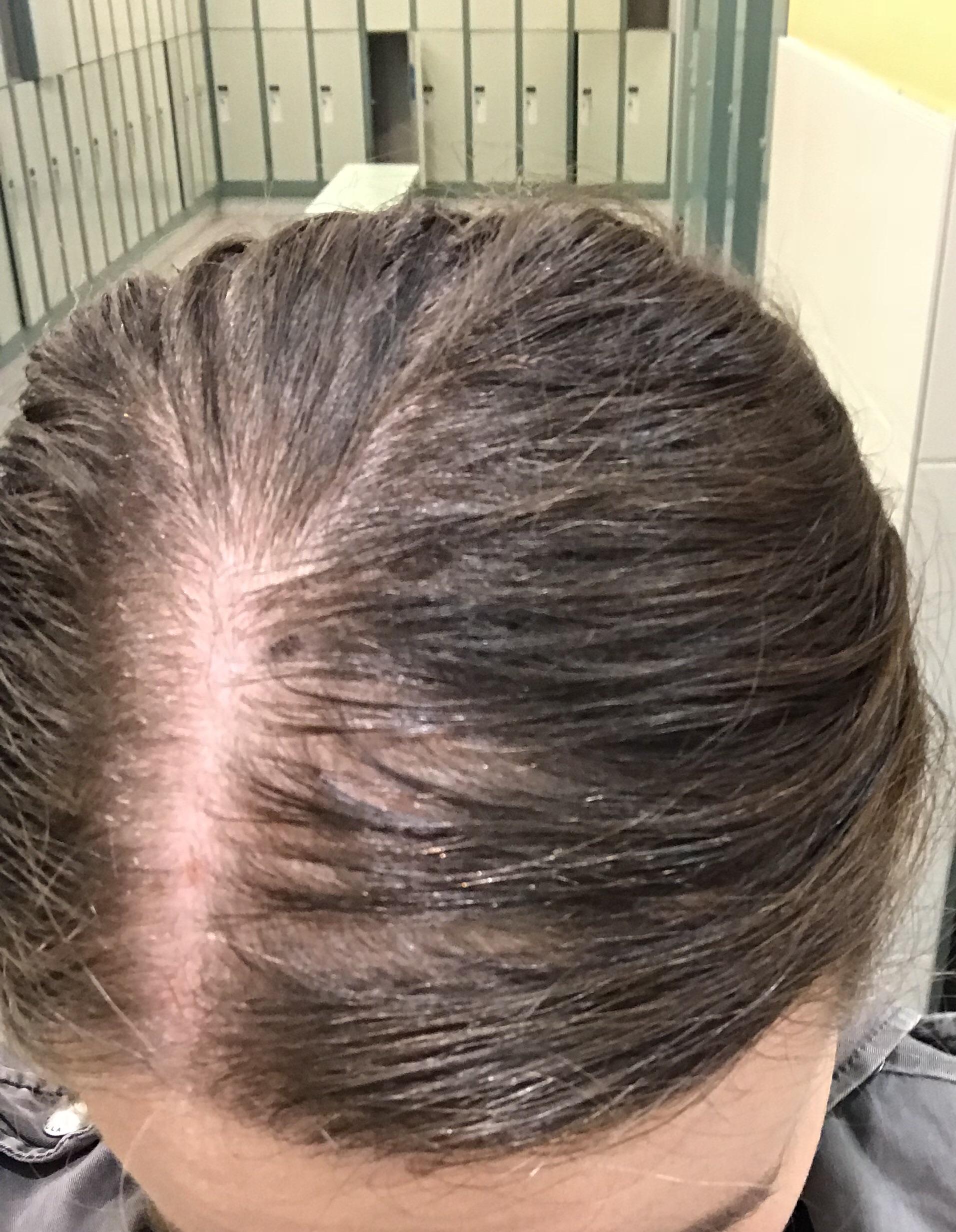
Image source: Reddit
In addition to hair loss, autoimmune disorders like lupus, Hashimoto's thyroiditis, and rheumatoid arthritis may present with a range of systemic symptoms affecting multiple organ systems. Recognizing and addressing these symptoms is essential for managing the underlying autoimmune condition and associated alopecia.
20. The psychological impact
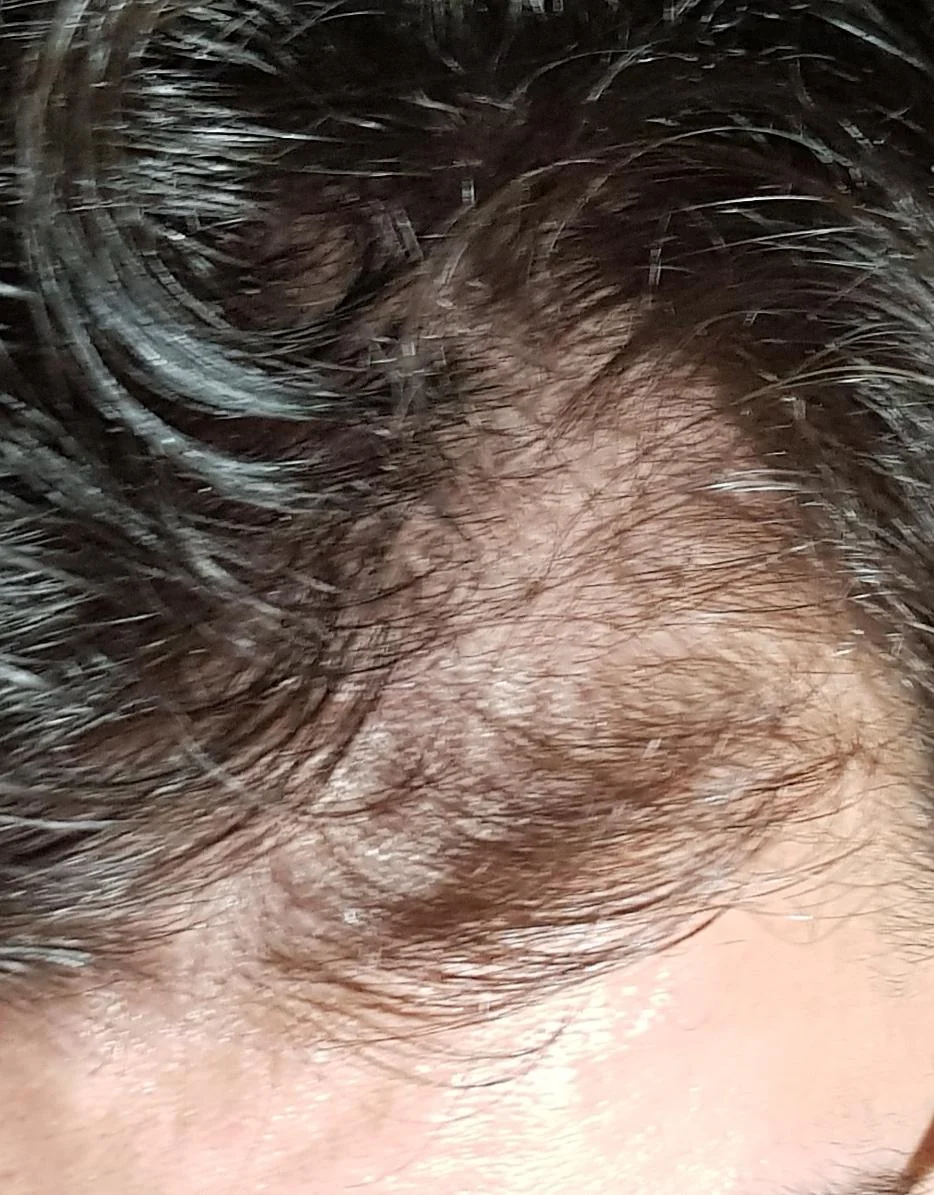
Image source: Reddit
Hair loss can have profound psychological effects, impacting self-esteem, body image, and quality of life. Individuals experiencing hair loss may feel self-conscious, anxious, or depressed, particularly if they perceive their appearance to be significantly altered. Seeking support from mental health professionals, support groups, and loved ones can help individuals cope with the emotional challenges of alopecia.
21. Hair thinning along the hairline

Image source: Reddit
Frontal fibrosing alopecia is a subtype of alopecia that primarily affects the frontal hairline and eyebrows, resulting in progressive hair loss and scarring along the affected areas. This condition predominantly affects postmenopausal women and is believed to have an autoimmune component.
22. Hair loss following childbirth
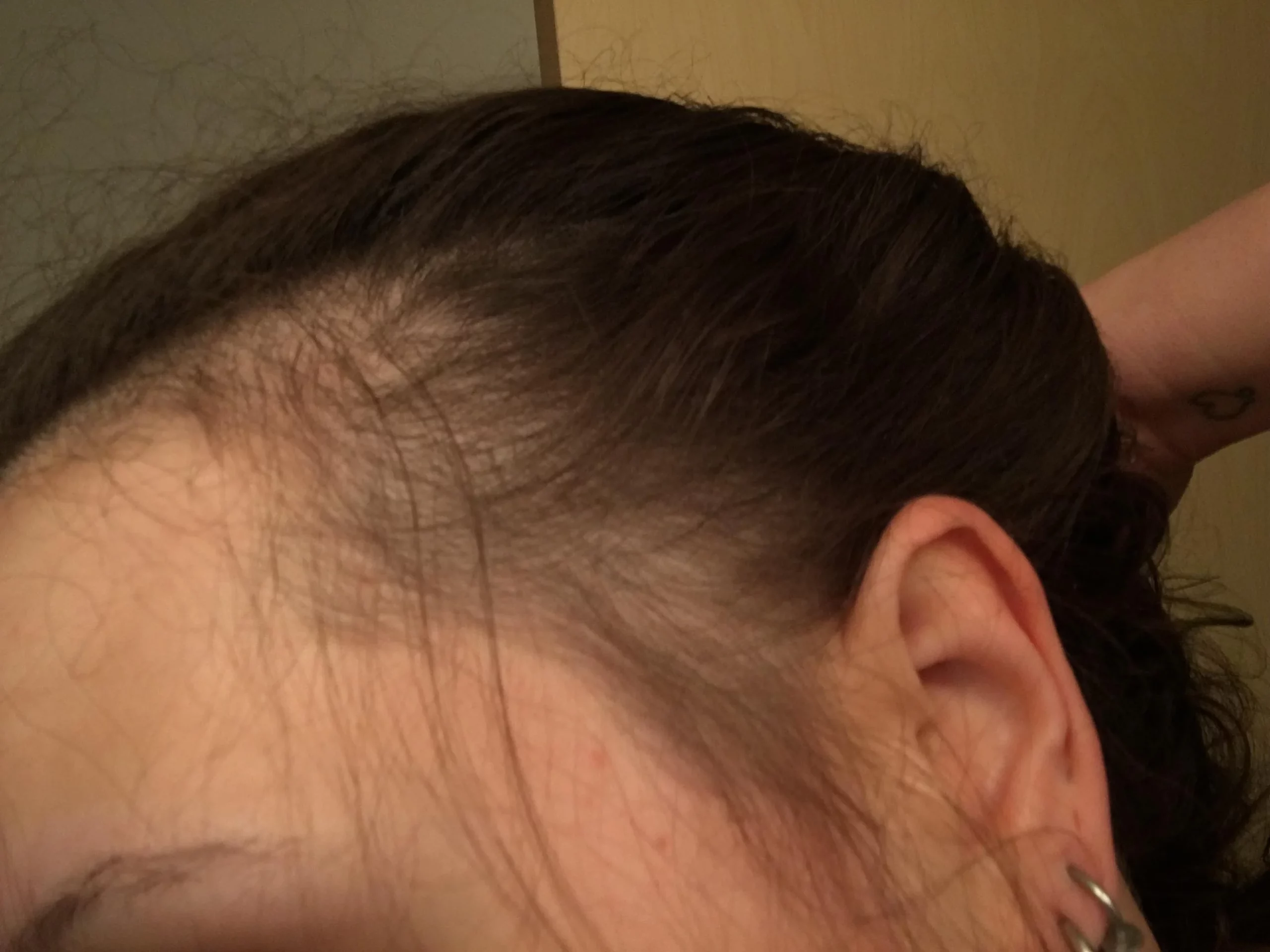
Image source: Reddit
Postpartum hair loss, also known as telogen effluvium of childbirth, occurs due to hormonal changes following pregnancy. Oestrogen levels, which are elevated during pregnancy, drop significantly after childbirth, triggering a shift in the hair growth cycle and leading to temporary shedding of hair several months post-delivery.
23. Hair loss accompanied by scalp flaking
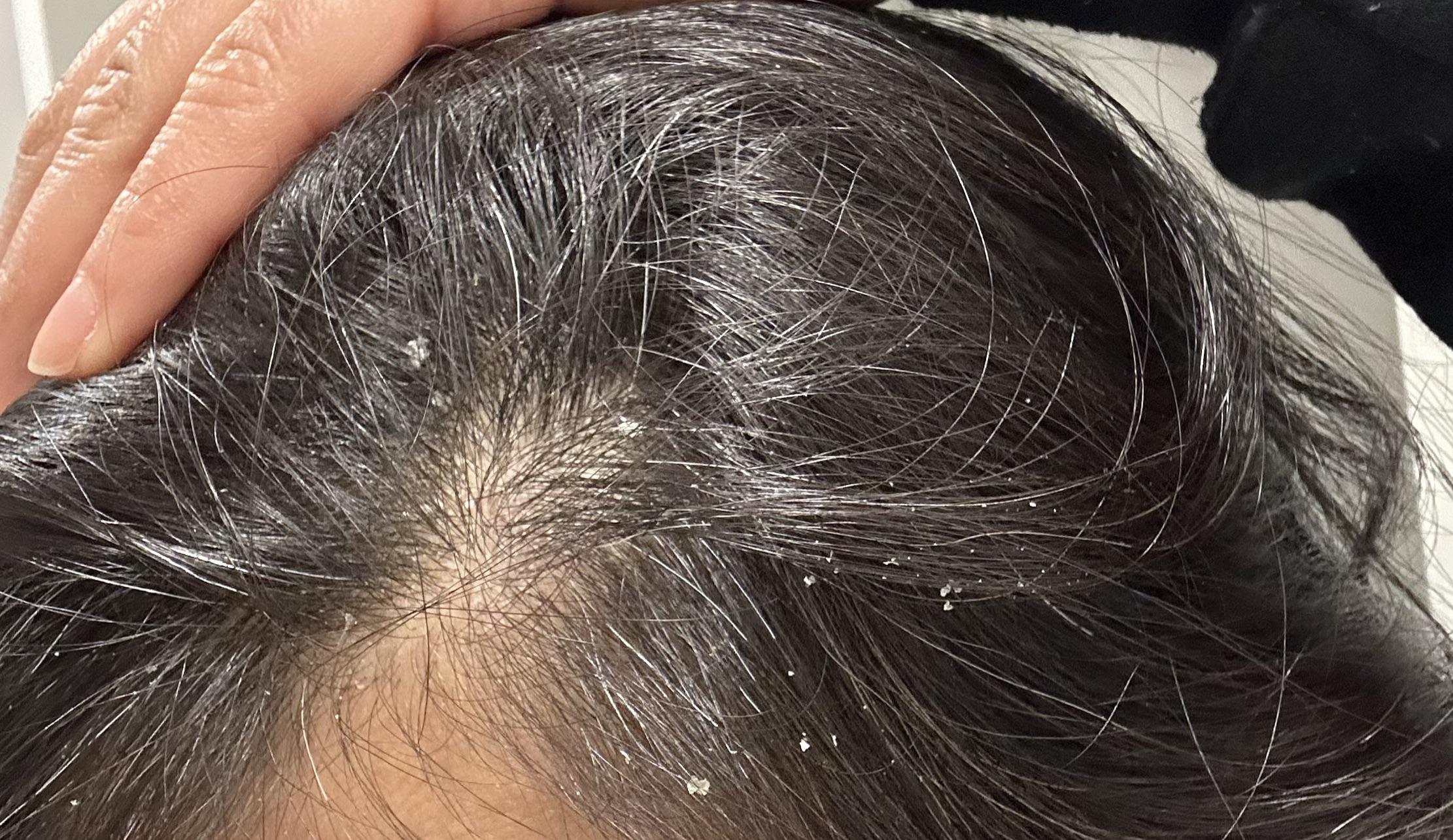
Image source: Reddit
Scalp conditions such as seborrheic dermatitis or psoriasis can lead to inflammation and scaling of the scalp, contributing to hair loss. These conditions often involve an overgrowth of yeast or immune system dysfunction, resulting in flaking, redness, and itching of the scalp.
24. Hair Loss after chemotherapy
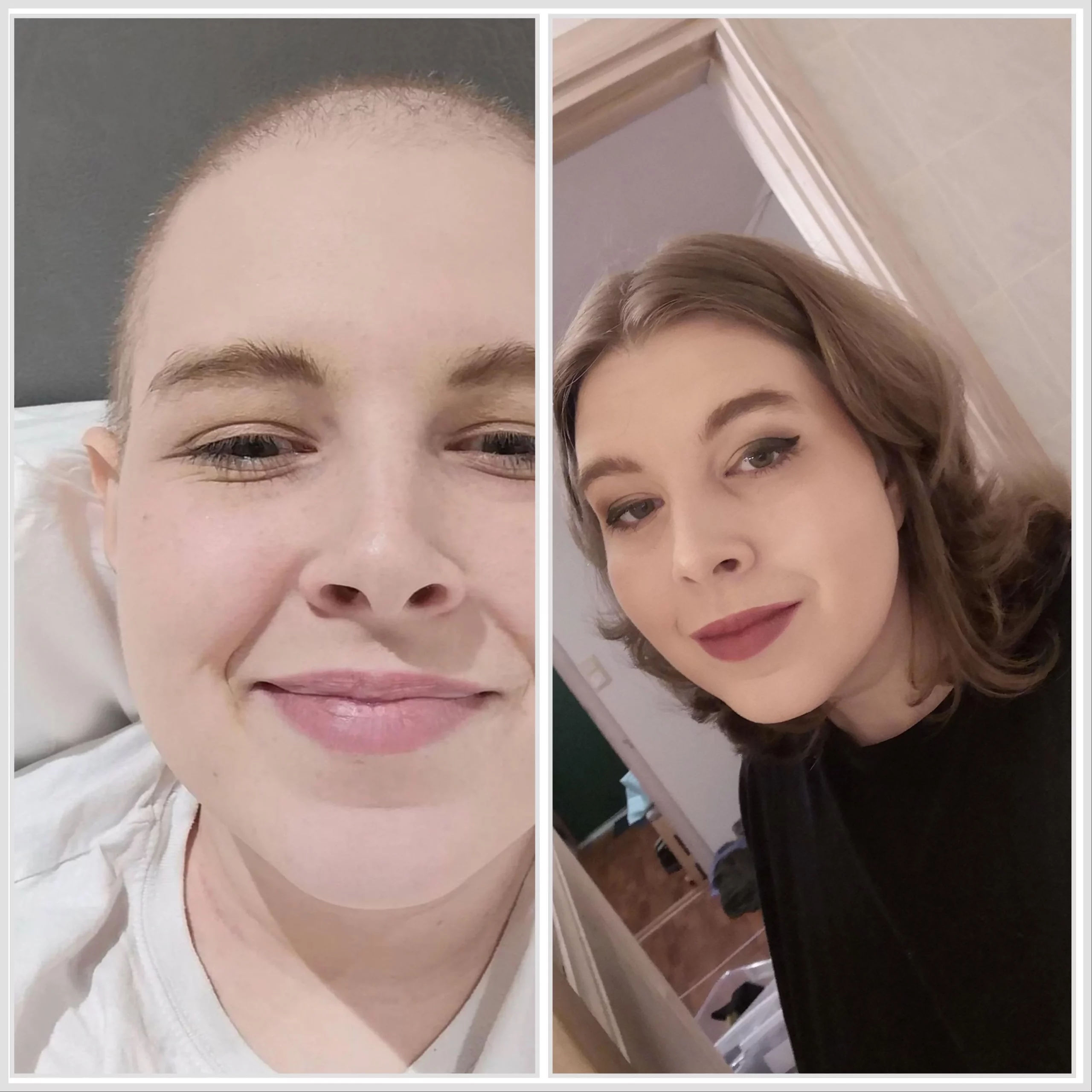
Image source: Reddit
Chemotherapy drugs target rapidly dividing cells, including hair follicles, leading to hair loss during cancer treatment. While hair loss is often temporary and reversible once chemotherapy is completed, the regrowth process may take several months, and hair texture or color may temporarily change.
25. Hair loss associated with traction
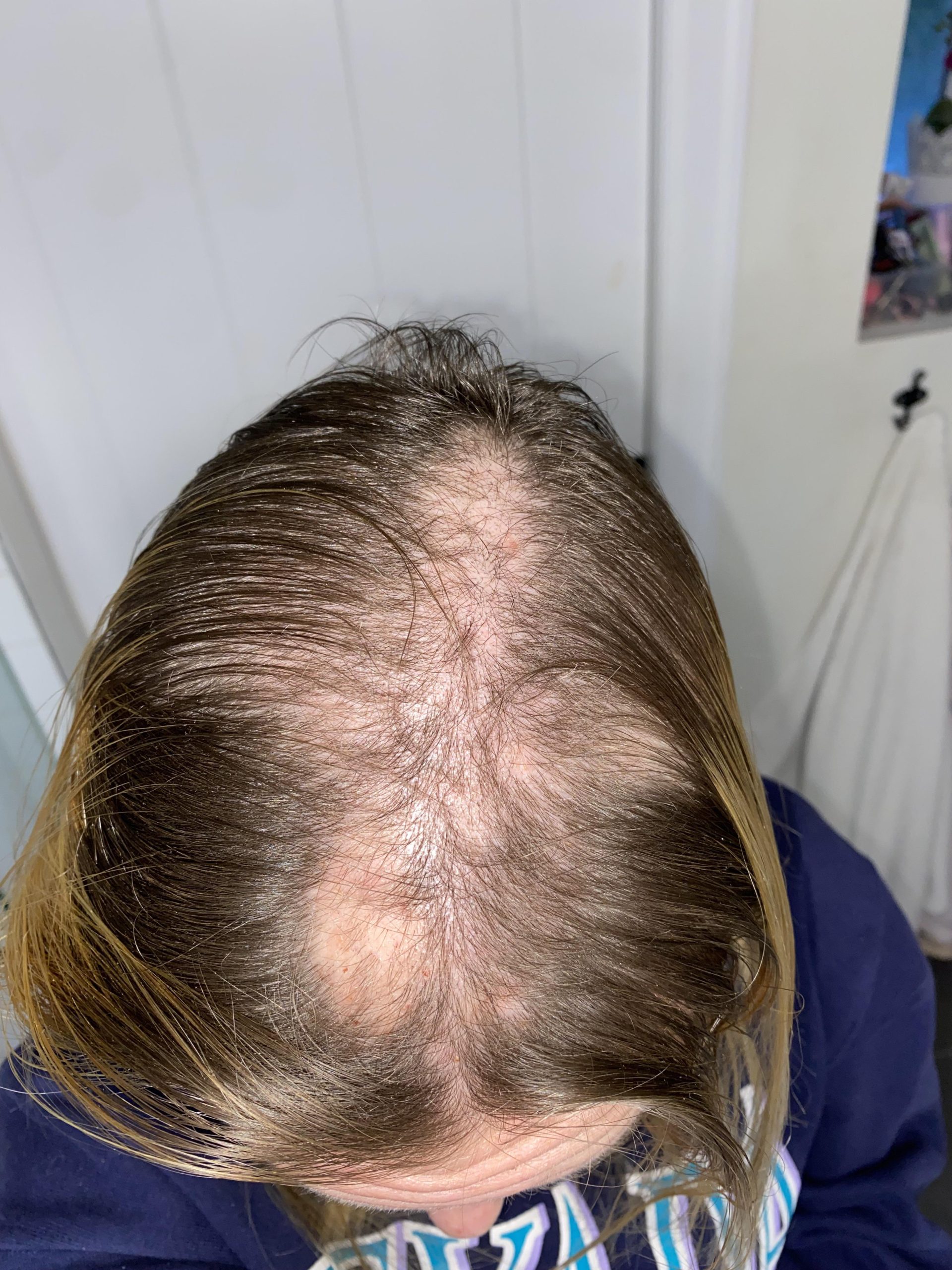
Image source: Reddit
Traction alopecia results from continuous tension on the hair follicles, commonly caused by tight hairstyles like braids, ponytails, or hair weaves. Prolonged traction can damage hair follicles and lead to hair thinning, particularly along the hairline and temples.
26. Hair loss following significant weight loss
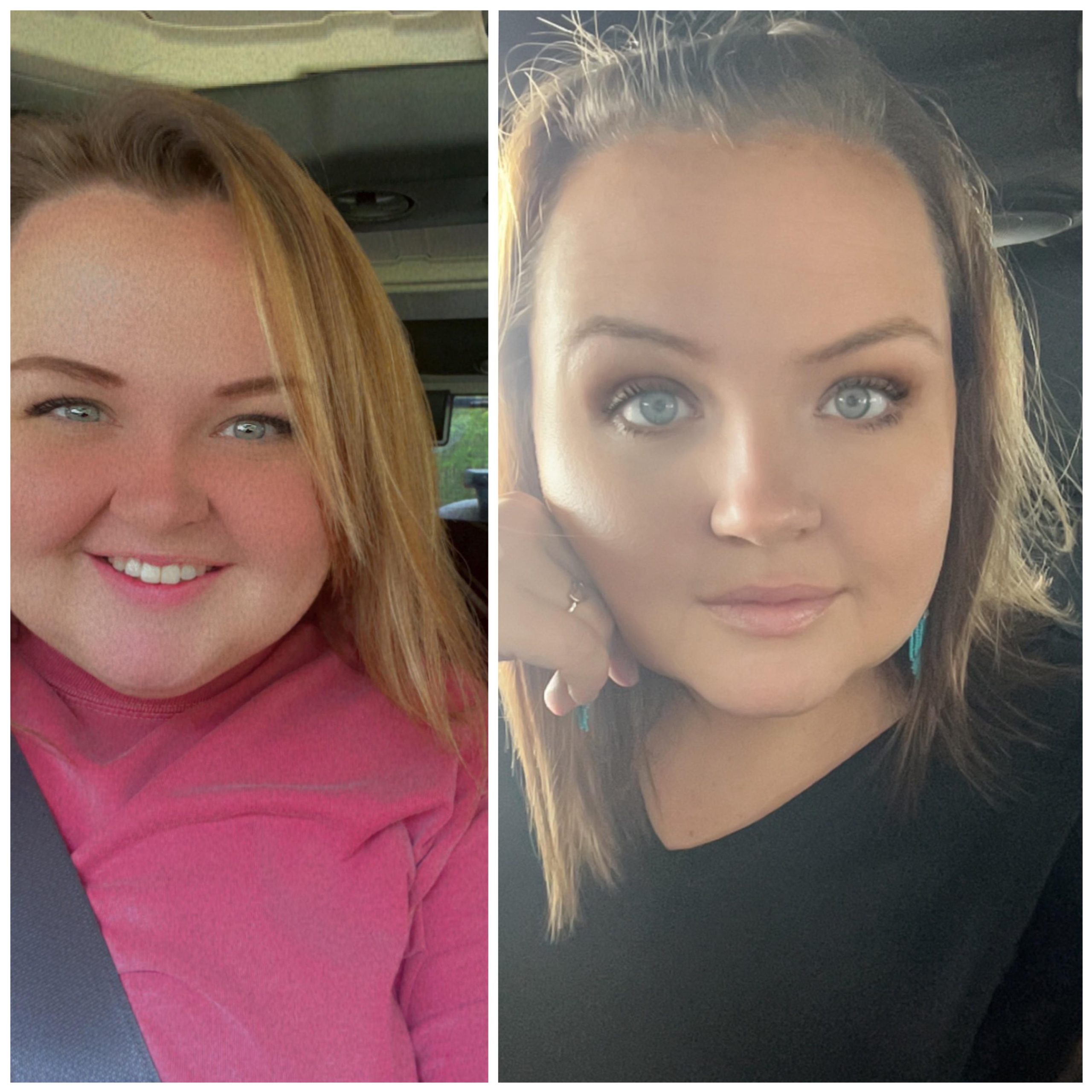
Image source: Reddit
Rapid weight loss can disrupt the body's nutritional balance and energy metabolism, resulting in telogen effluvium, a condition characterized by excessive shedding of hair. Nutritional deficiencies, particularly of protein, iron, and essential vitamins, can further exacerbate hair loss in individuals undergoing weight loss regimens.
27. Hair loss in response to medications
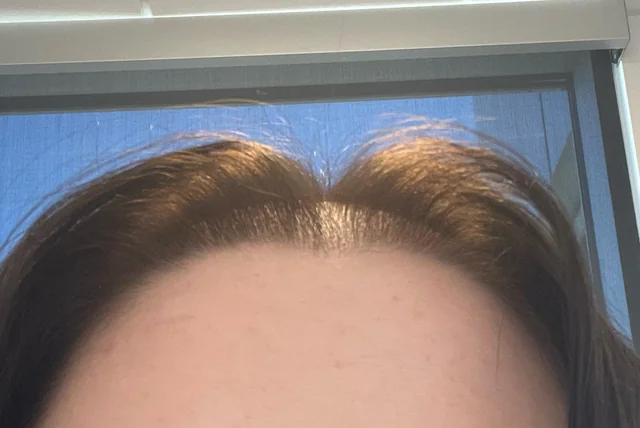
Image source: Reddit
Certain medications, including antidepressants, anticoagulants, beta-blockers, and retinoids, can disrupt the hair growth cycle and induce telogen effluvium or anagen effluvium, leading to hair shedding. Hair loss typically resolves once the medication is discontinued or adjusted under medical supervision.
28. Hair loss associated with iron deficiency
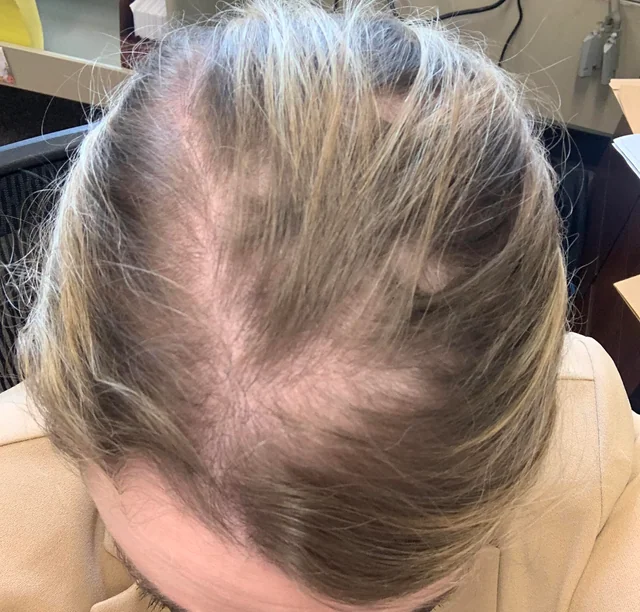
Image source: Reddit
Iron deficiency anaemia can impair the body's ability to produce haemoglobin, resulting in reduced oxygen supply to tissues, including hair follicles. Iron deficiency can lead to thinning, brittle hair and contribute to hair loss, emphasizing the importance of adequate iron intake for maintaining hair health.
29. Hair loss in association with hormonal imbalances
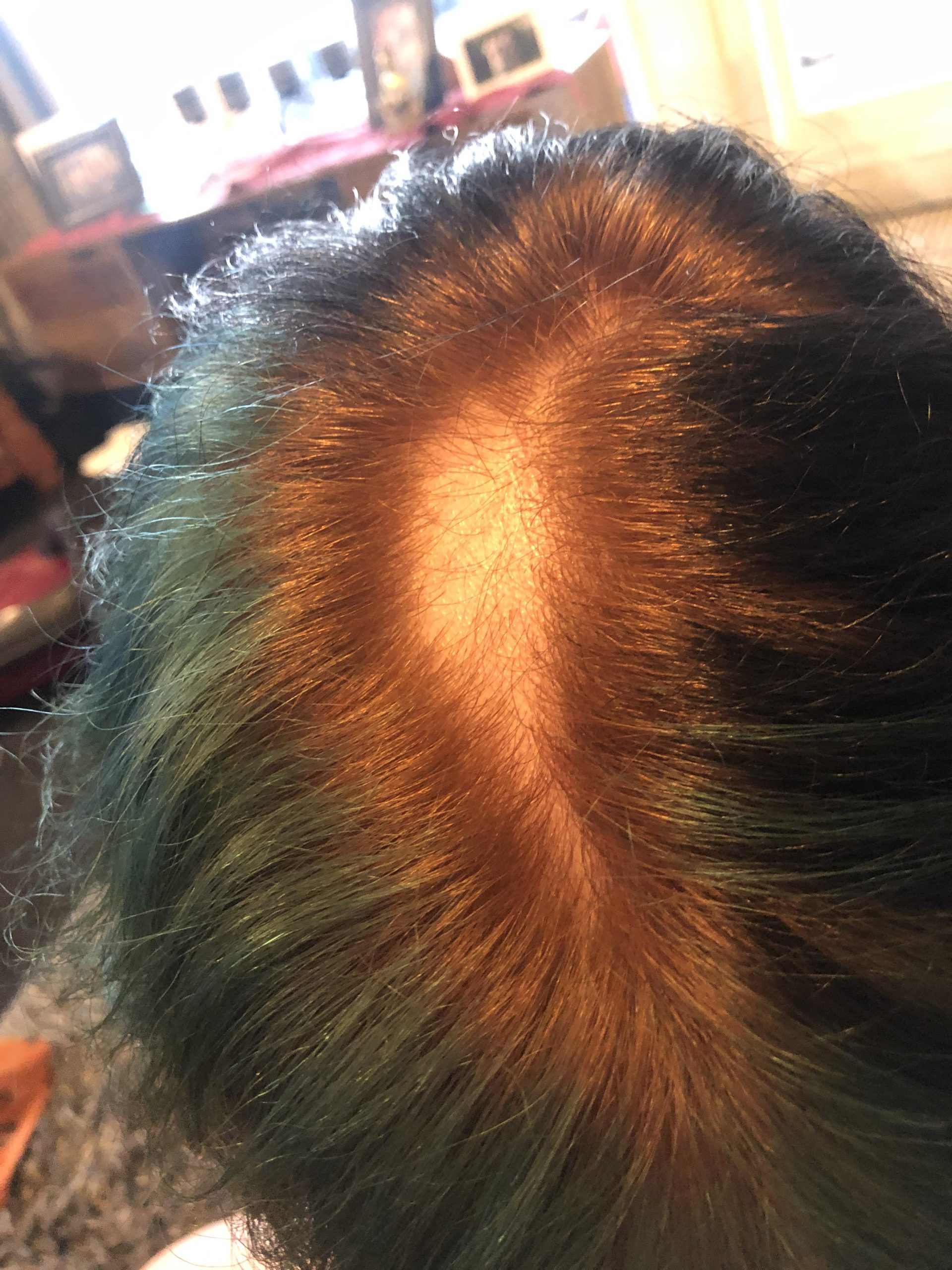
Image source: Reddit
Hormonal imbalances, such as hypothyroidism, hyperthyroidism, PCOS, or fluctuations in oestrogen and progesterone levels during menopause, can disrupt the hair growth cycle and lead to hair loss. Hormone replacement therapy or medications to regulate hormone levels may help alleviate hair loss associated with hormonal imbalances.
30. Hair loss in children

Image source: Reddit
Paediatric alopecia can result from a variety of factors, including autoimmune conditions like alopecia areata, fungal infections of the scalp, hormonal imbalances, or genetic predisposition. Prompt evaluation by a paediatrician or dermatologist is essential to identify the underlying cause.
31. What you should do if you are suffering with alopecia -
Consult a dermatologist
Image source: Reddit
You would be wise to seek professional medical advice from a dermatologist experienced in treating hair loss disorders. A dermatologist can diagnose the type and severity of alopecia and recommend appropriate treatment options tailored to your specific condition.
32. Explore treatment options
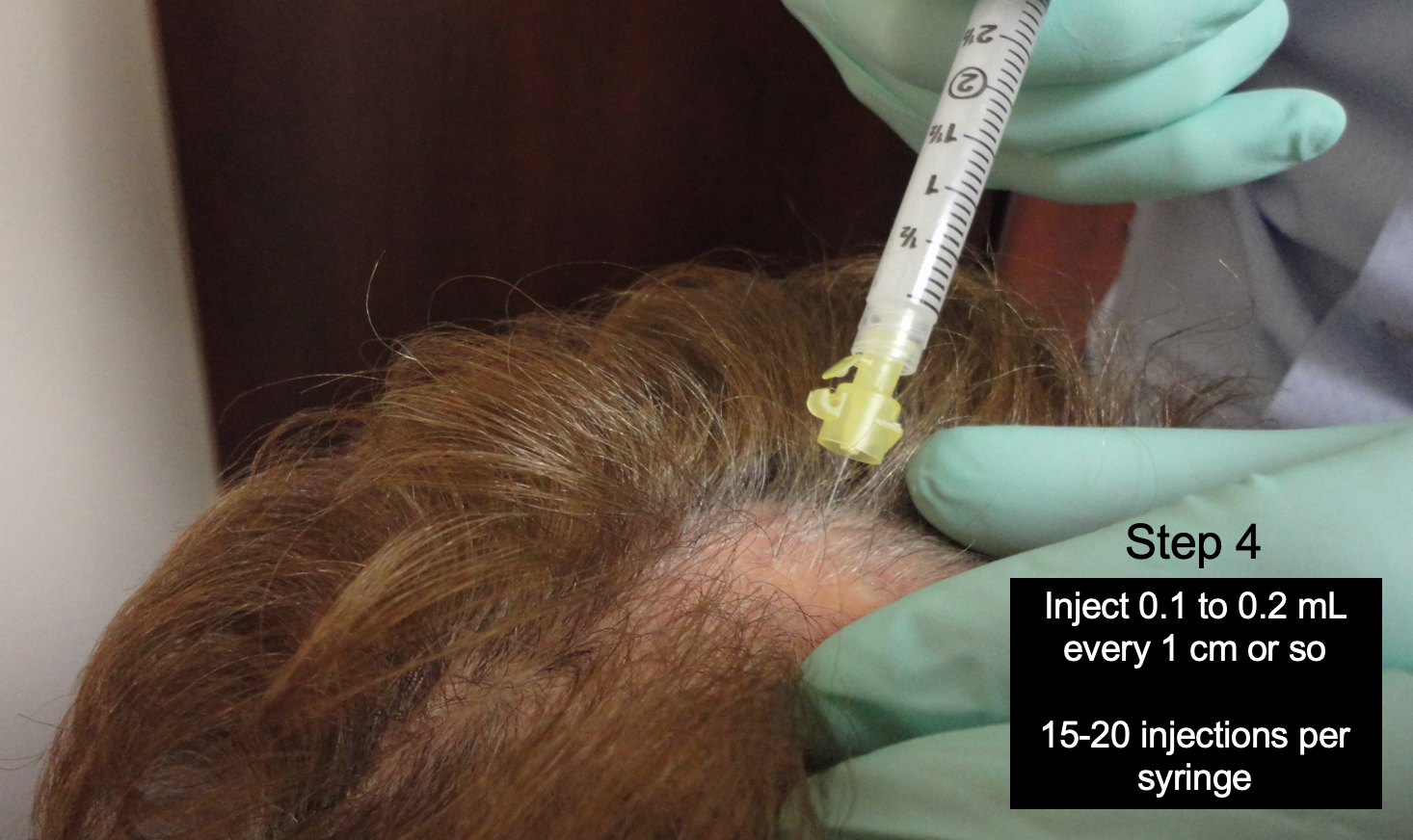
Image source: Reddit
Discuss available treatment options with your dermatologist or health professional. Treatment may include topical medications, oral medications, corticosteroid injections, immunotherapy, or laser therapy, depending on the type and extent of hair loss.
33. Consider support groups
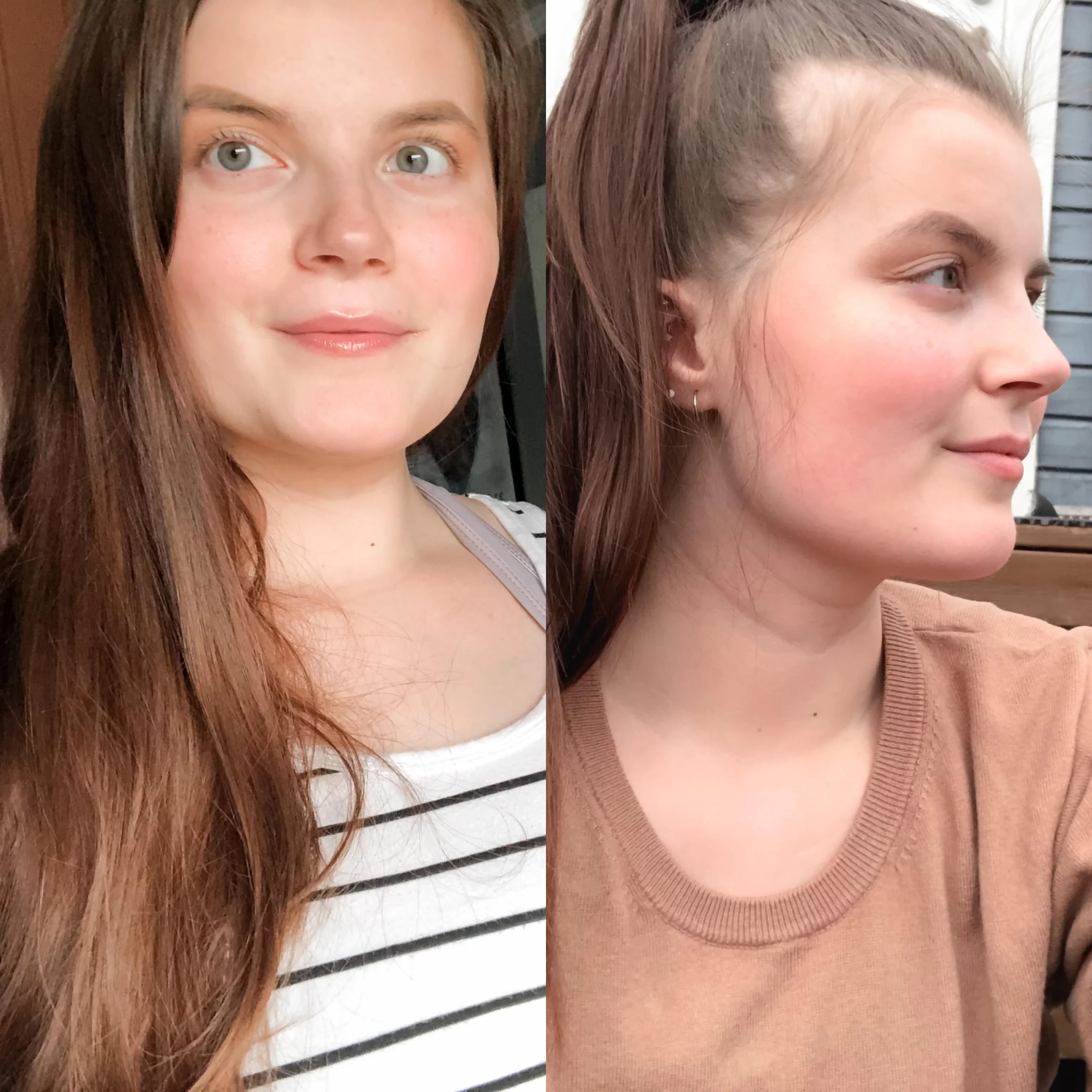
Image source: Reddit
Joining support groups or online communities for individuals with alopecia can provide emotional support, encouragement, and practical advice from others who understand your experiences. Connecting with peers can help alleviate feelings of isolation and boost self-esteem.
34. Experiment with hairstyles
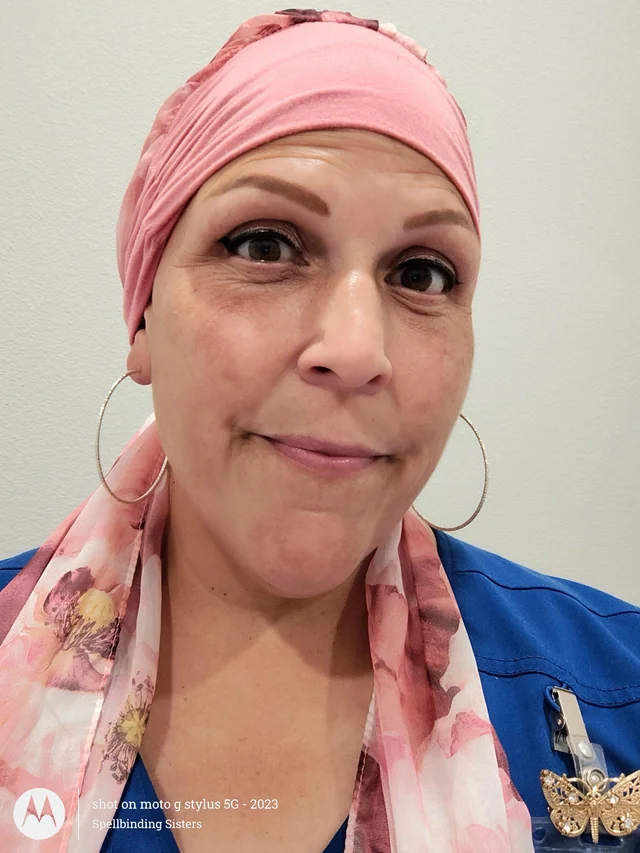
Image source: Reddit
Embrace creative hairstyles and hair accessories to express your personal style and enhance your confidence. Experimenting with wigs, scarves, hats, and head wraps can offer versatility and allow you to adapt your appearance to different occasions and moods.
35. Practice self-care

Image source: Lady Alopecia
Prioritize self-care activities that promote overall well-being, such as regular exercise, healthy eating habits, sufficient sleep, and stress management techniques like meditation, yoga, or deep breathing exercises. Taking care of your physical and mental health can positively impact your hair and overall quality of life.
36. Seek counselling or therapy

Image source: Inner Strength
Consider seeking professional counselling or therapy to address any emotional distress, anxiety, or depression associated with alopecia. A mental health professional can provide coping strategies, emotional support, and cognitive-behavioral techniques to help manage negative thoughts and emotions related to hair loss.
37. Educate yourself
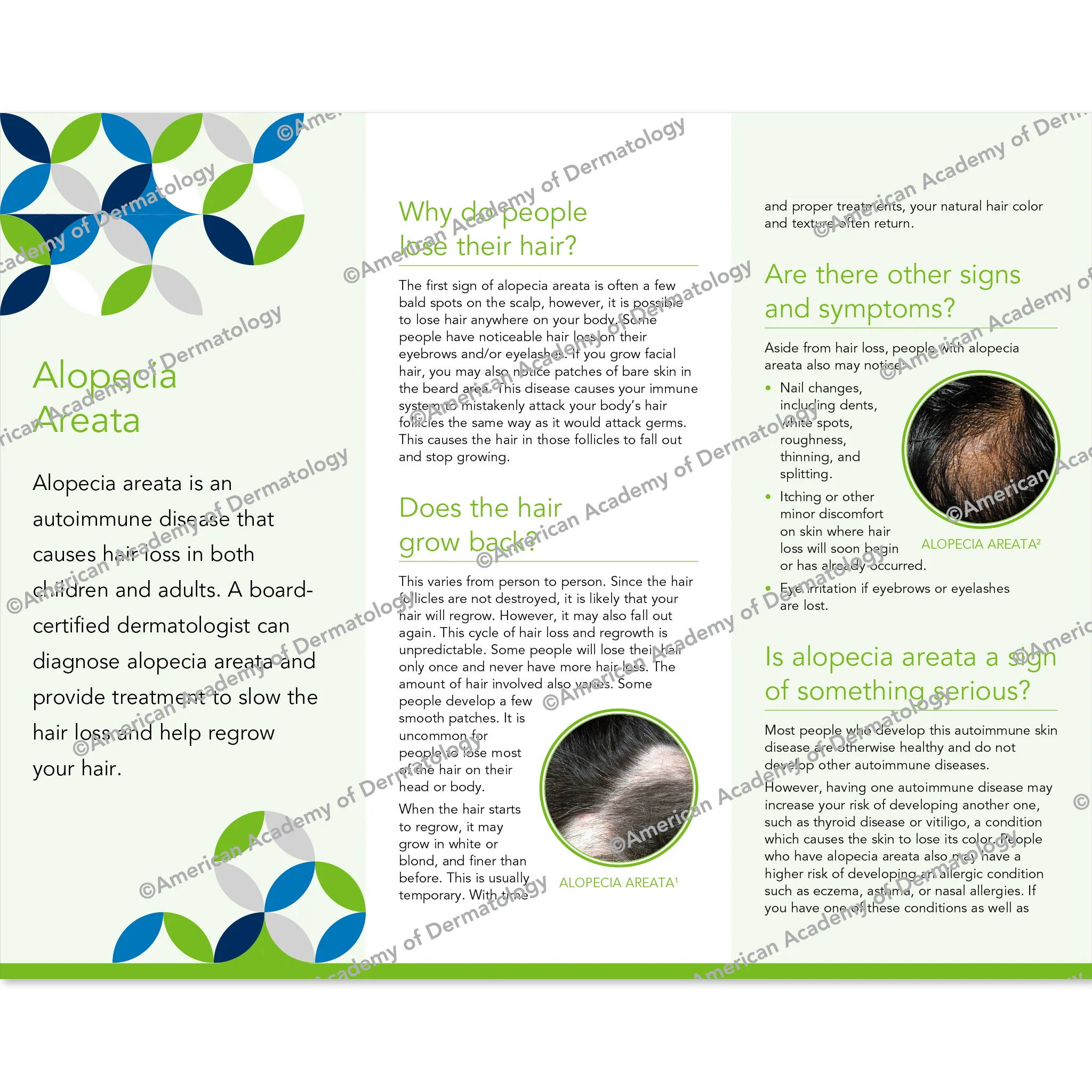
Image source: Insider
Educate yourself about alopecia by researching reputable sources of information, attending educational events, and staying informed about the latest developments in hair loss research and treatment options. Understanding your condition can empower you to make informed decisions and advocate for your needs.
38. Focus on what you can control
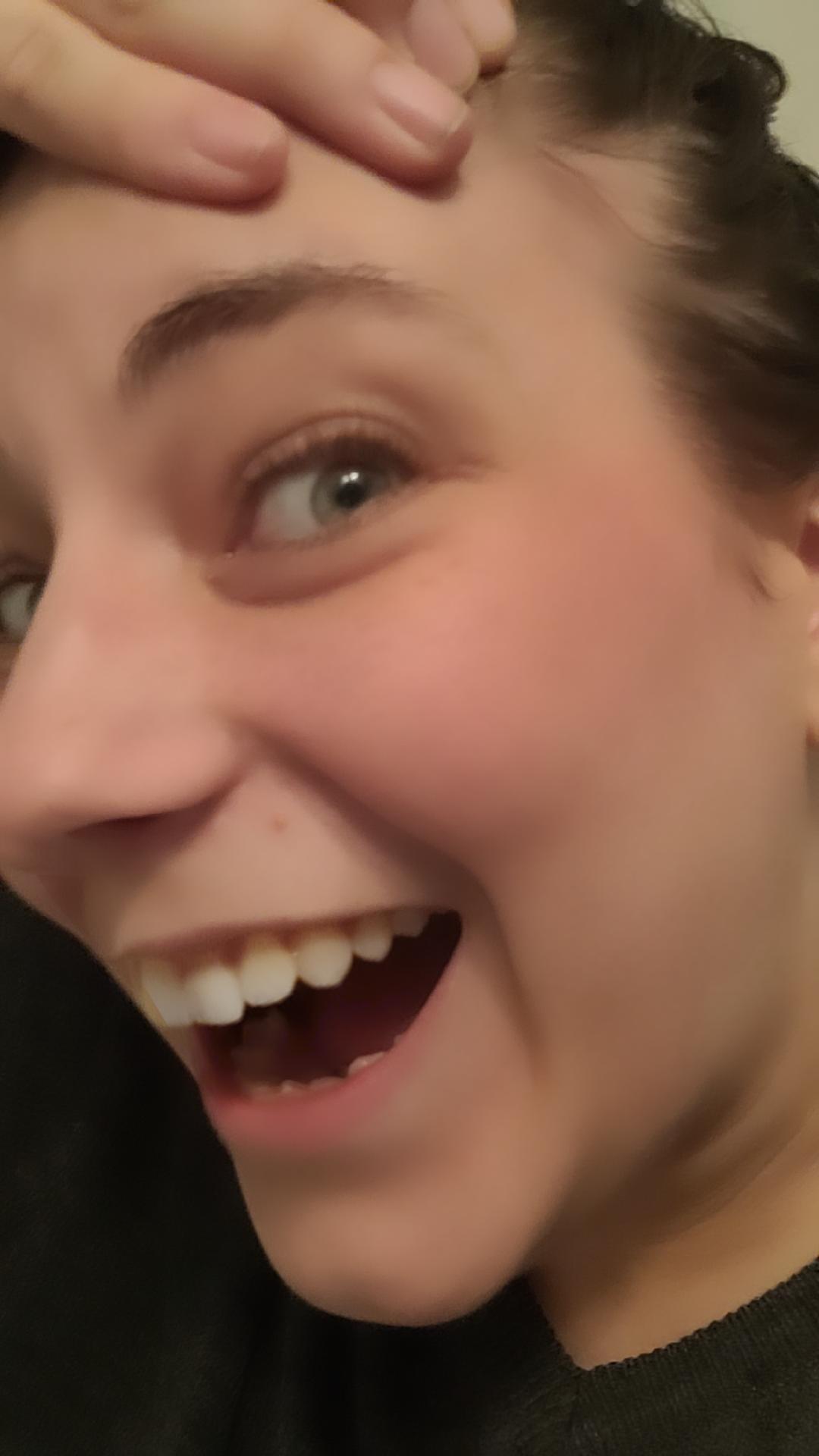
Image source: Reddit
Focus on aspects of your life that you can control, such as your attitude, outlook, and lifestyle choices. Cultivate resilience, optimism, and gratitude for the blessings in your life, while accepting and adapting to the challenges that alopecia brings.
39. Celebrate your individuality
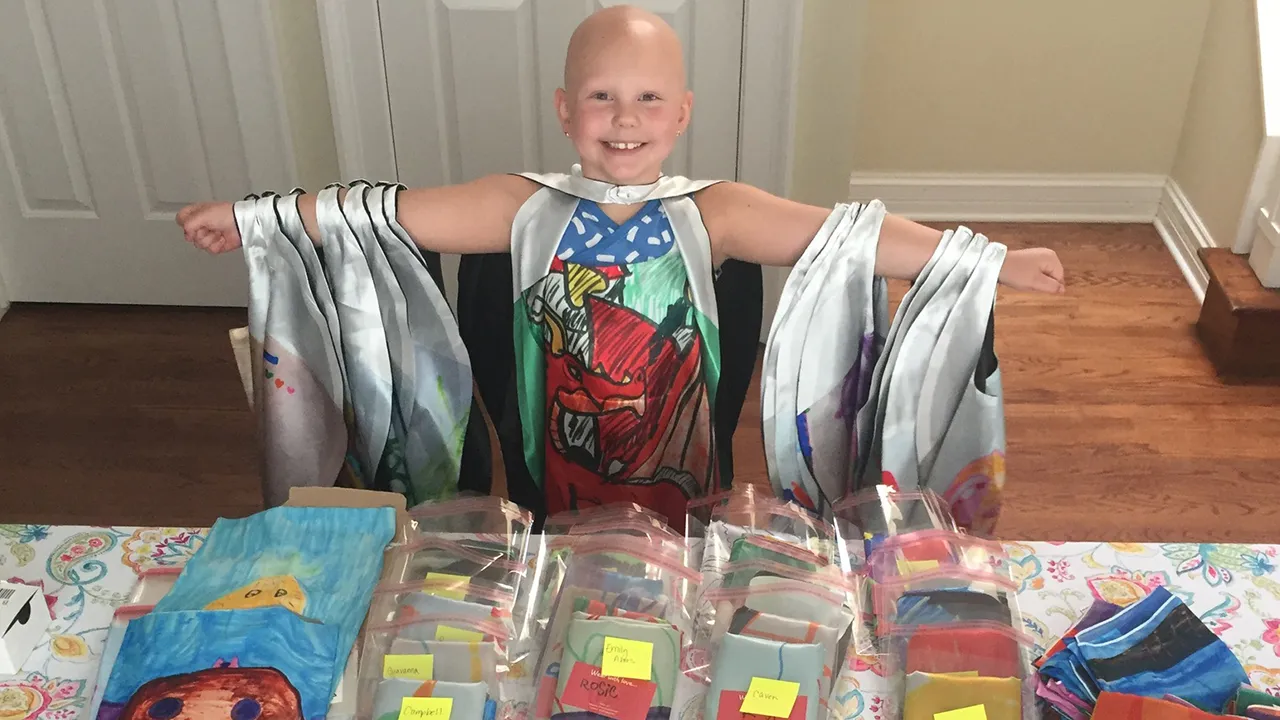
Image source: USA Today
Embrace your unique identity and celebrate the qualities that make you who you are beyond your physical appearance. Recognize that beauty comes in diverse forms and is not solely defined by hair. Cultivate self-acceptance, self-love, and appreciation for your intrinsic worth as a person.
40. Raise awareness of alopecia
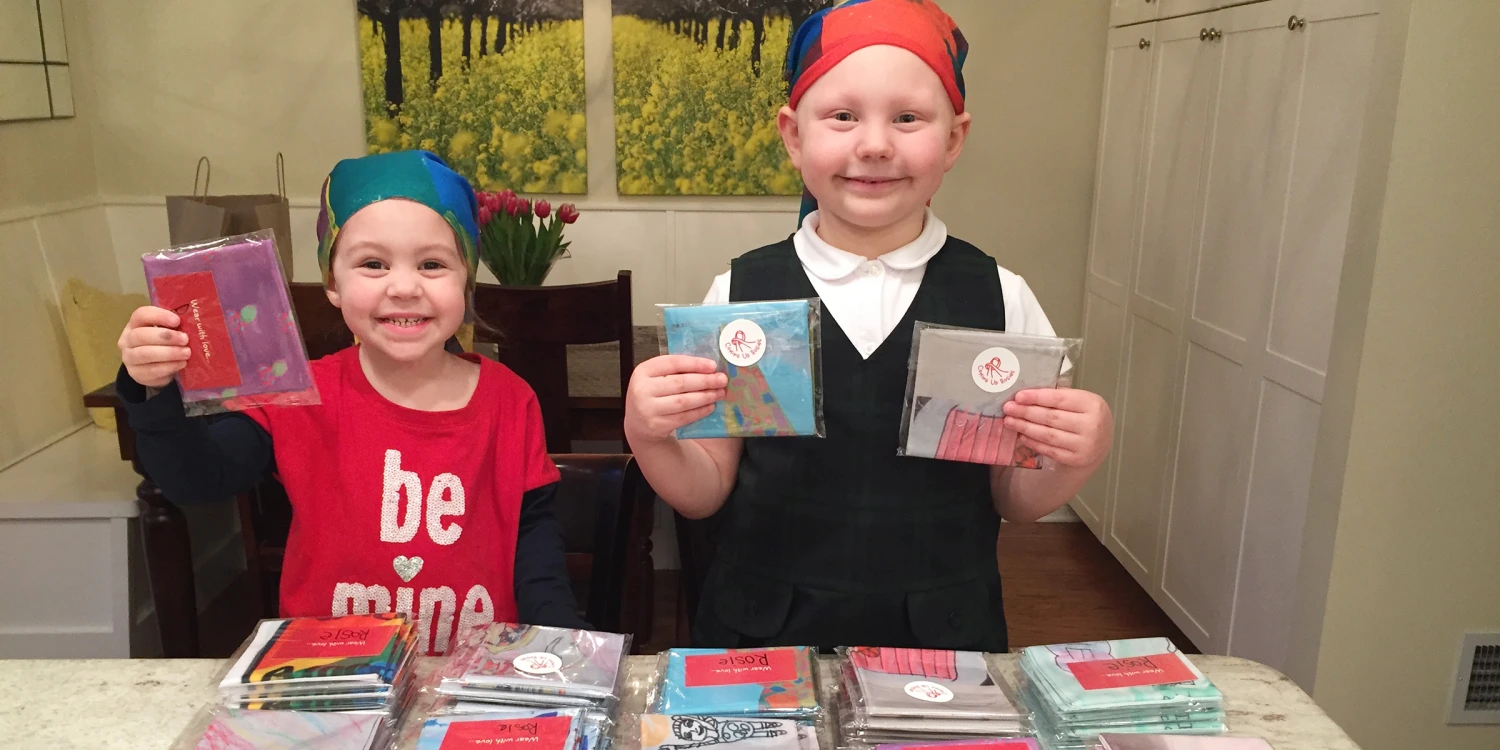
Image source: The Today Show
Advocate for greater awareness and acceptance of alopecia by sharing your story, participating in advocacy initiatives, and supporting organizations dedicated to raising awareness, funding research, and promoting inclusivity for individuals with hair loss conditions.
41. Common questions about hair loss -
What causes alopecia?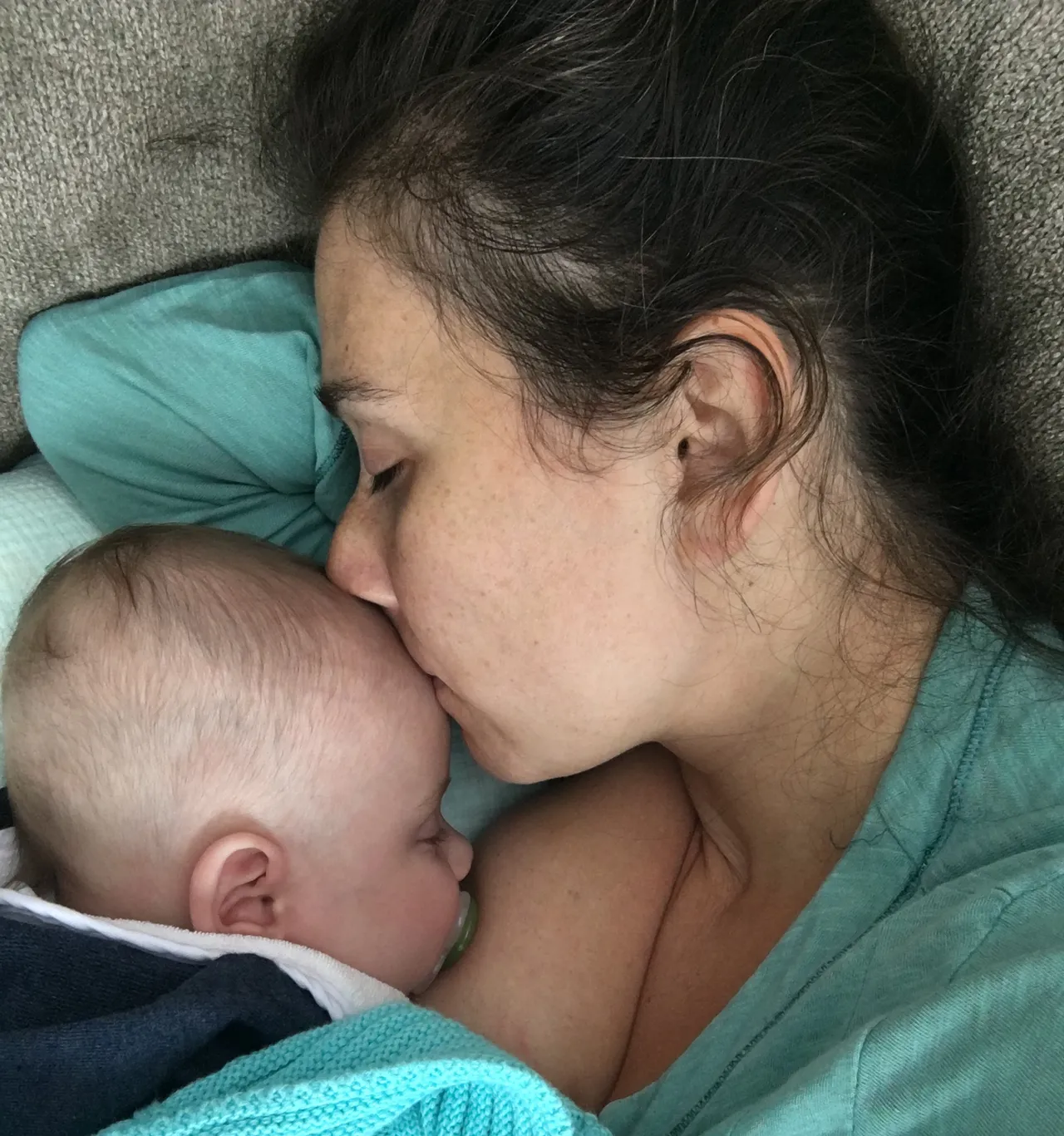
Image source: Insider
Alopecia can be caused by various factors, including genetics, autoimmune disorders, hormonal imbalances, stress, medications, and certain medical conditions. Alopecia manifests differently depending on the underlying cause and can result in temporary or permanent hair loss, impacting individuals physically and emotionally.
42. Is alopecia contagious?
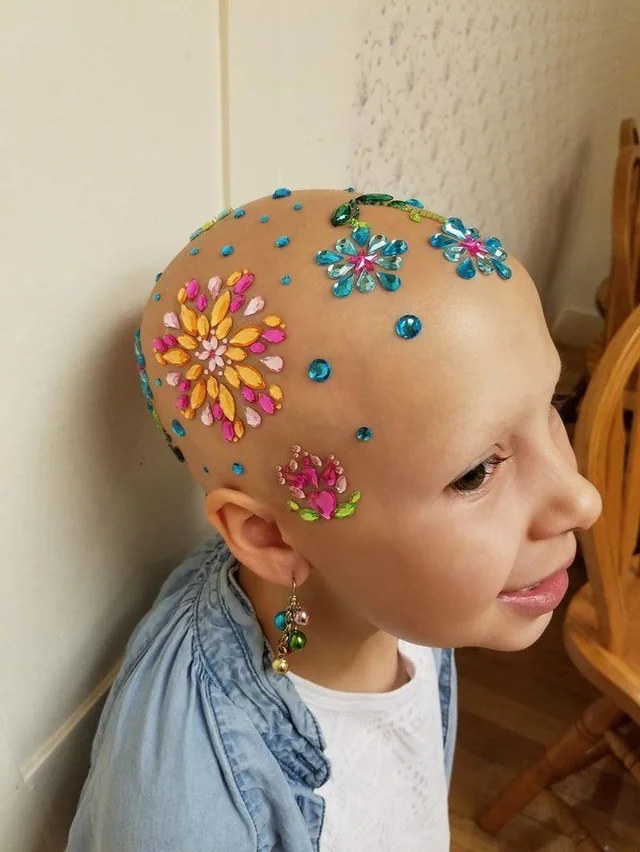
Image source: Reddit
No, alopecia is not contagious. It is not caused by viruses, bacteria, or other pathogens and cannot be transmitted from one person to another through physical contact. Alopecia is a non-infectious condition that primarily affects the hair follicles.
43. Can alopecia be cured?
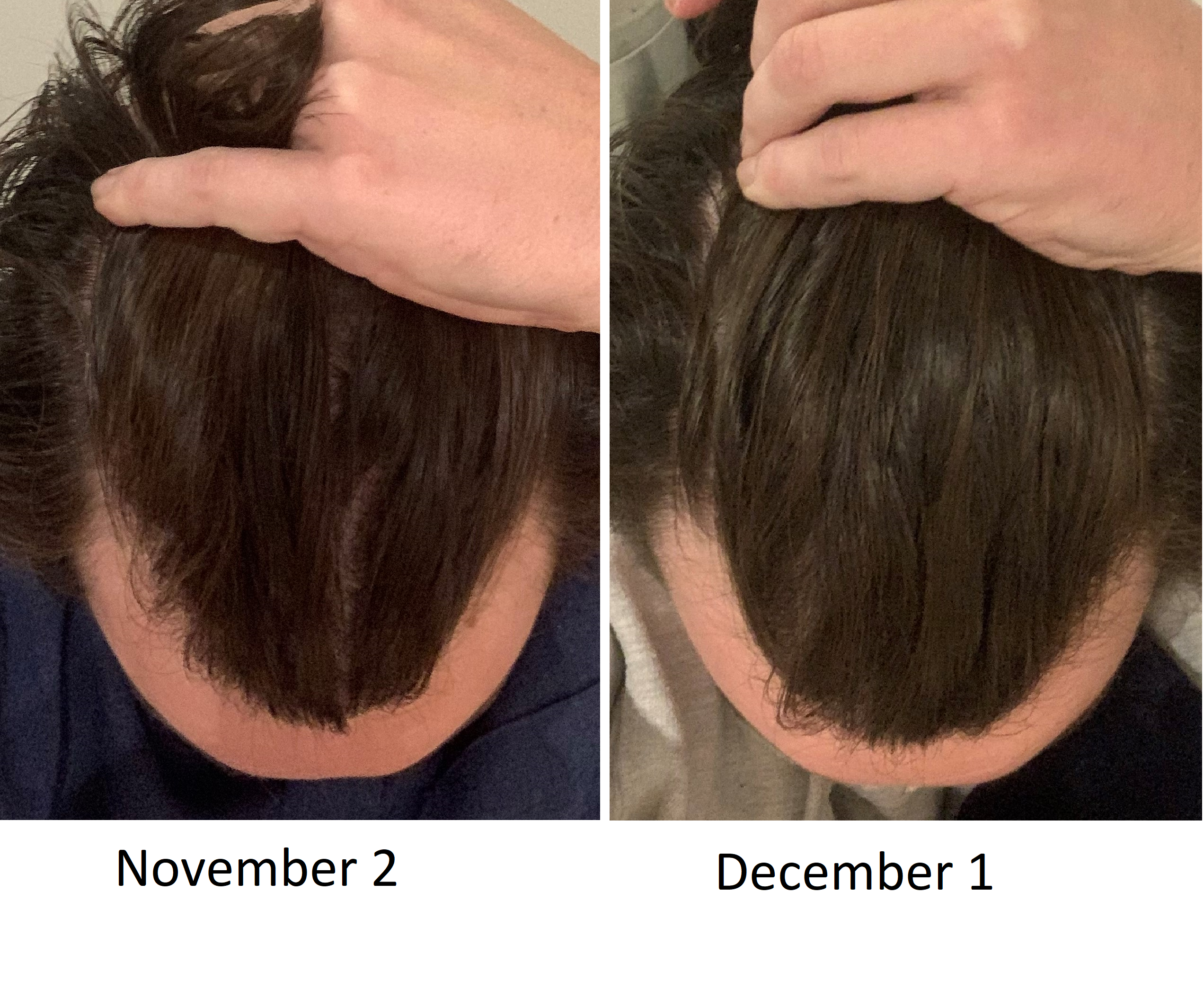
Image source: Reddit
The treatment and prognosis of alopecia depend on the type and severity of the condition. While some forms of alopecia may resolve spontaneously or respond well to treatment, others may be chronic and require long-term management lasting months or years.
44. Will my hair grow back after alopecia?
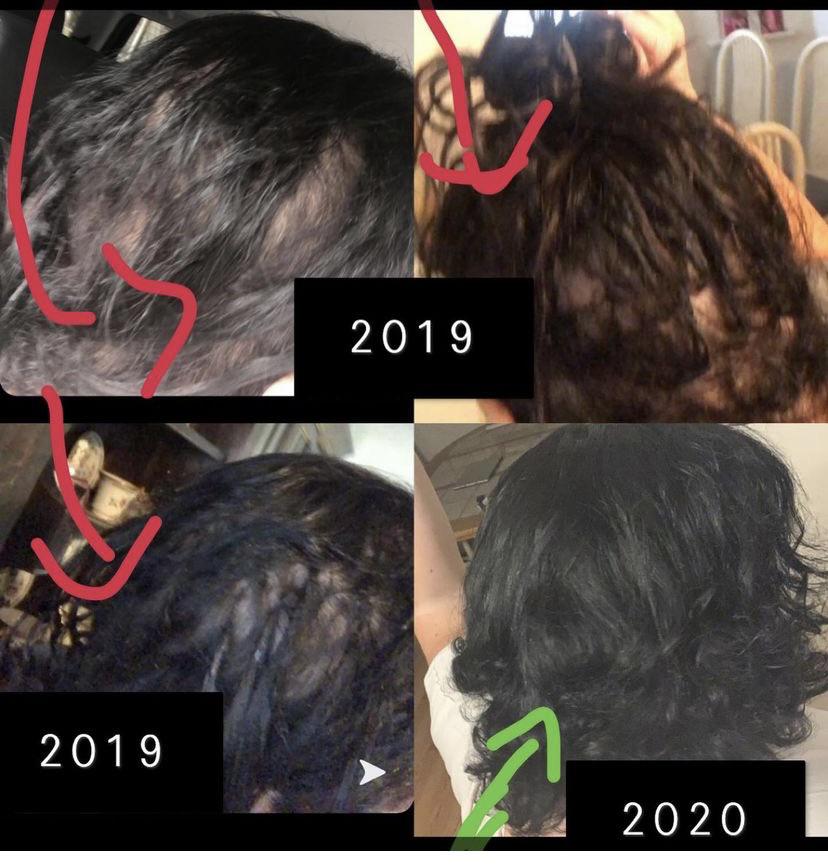
Image source: Reddit
In many cases, hair may regrow spontaneously, especially in milder forms of alopecia like alopecia areata. However, the regrowth process can be unpredictable and varies from person to person. Consulting a dermatologist can help determine the best course of action for promoting hair regrowth.
45. Are there effective treatments for alopecia?

Image source: Reddit
Yes, several treatment options are available for managing alopecia, including topical medications, oral medications, corticosteroid injections, immunotherapy, laser therapy, and hair transplantation. The choice of treatment depends on the type and extent of hair loss and individual response to therapy.
46. Can stress cause alopecia?
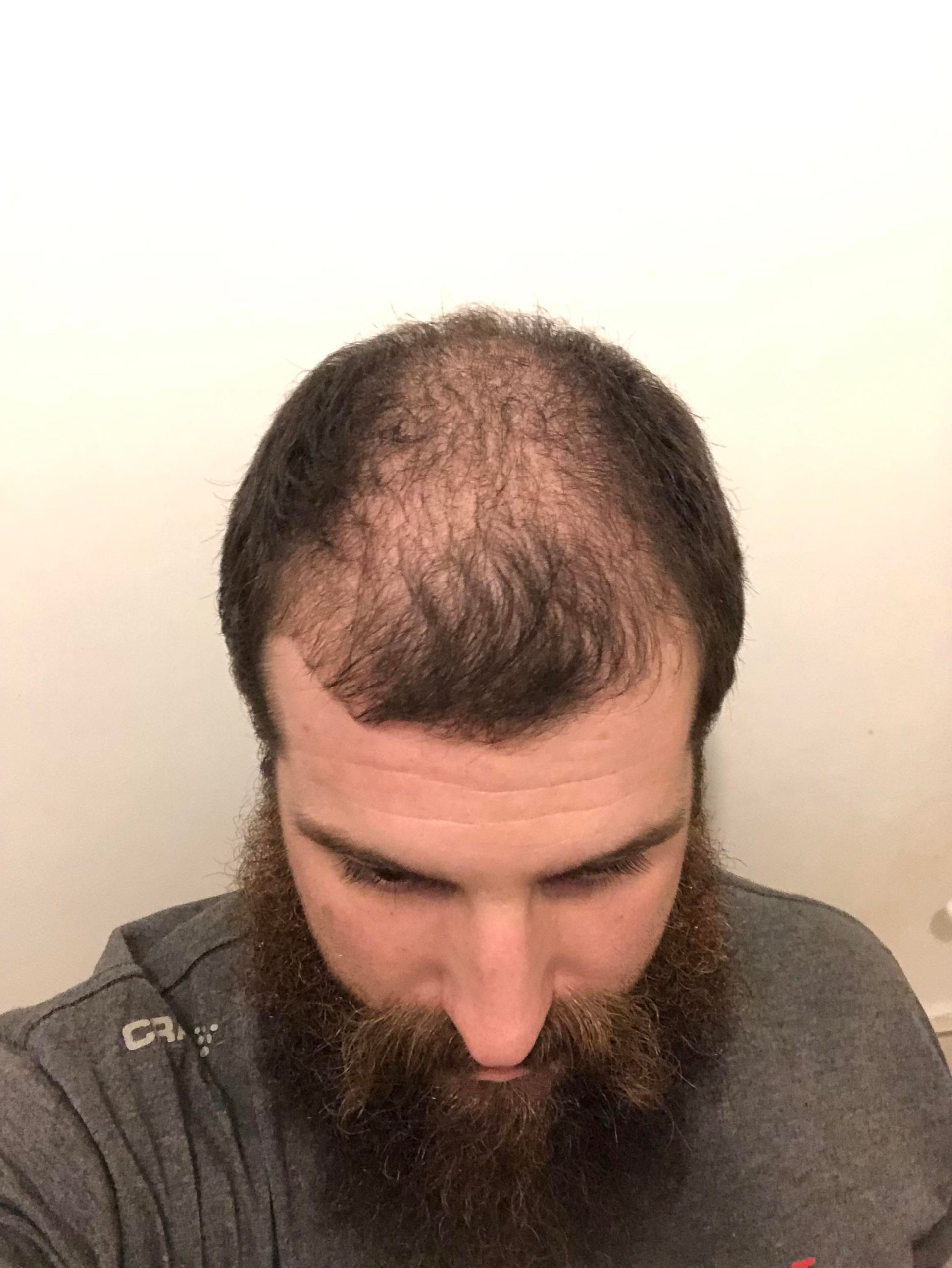
Image source: Reddit
Yes, stress can contribute to alopecia by triggering or exacerbating certain types of hair loss, such as telogen effluvium. Chronic stress can disrupt the normal hair growth cycle and lead to excessive shedding and thinning of hair. Blood flow to the scalp also alters during stress.
47. Is there a genetic predisposition to alopecia?
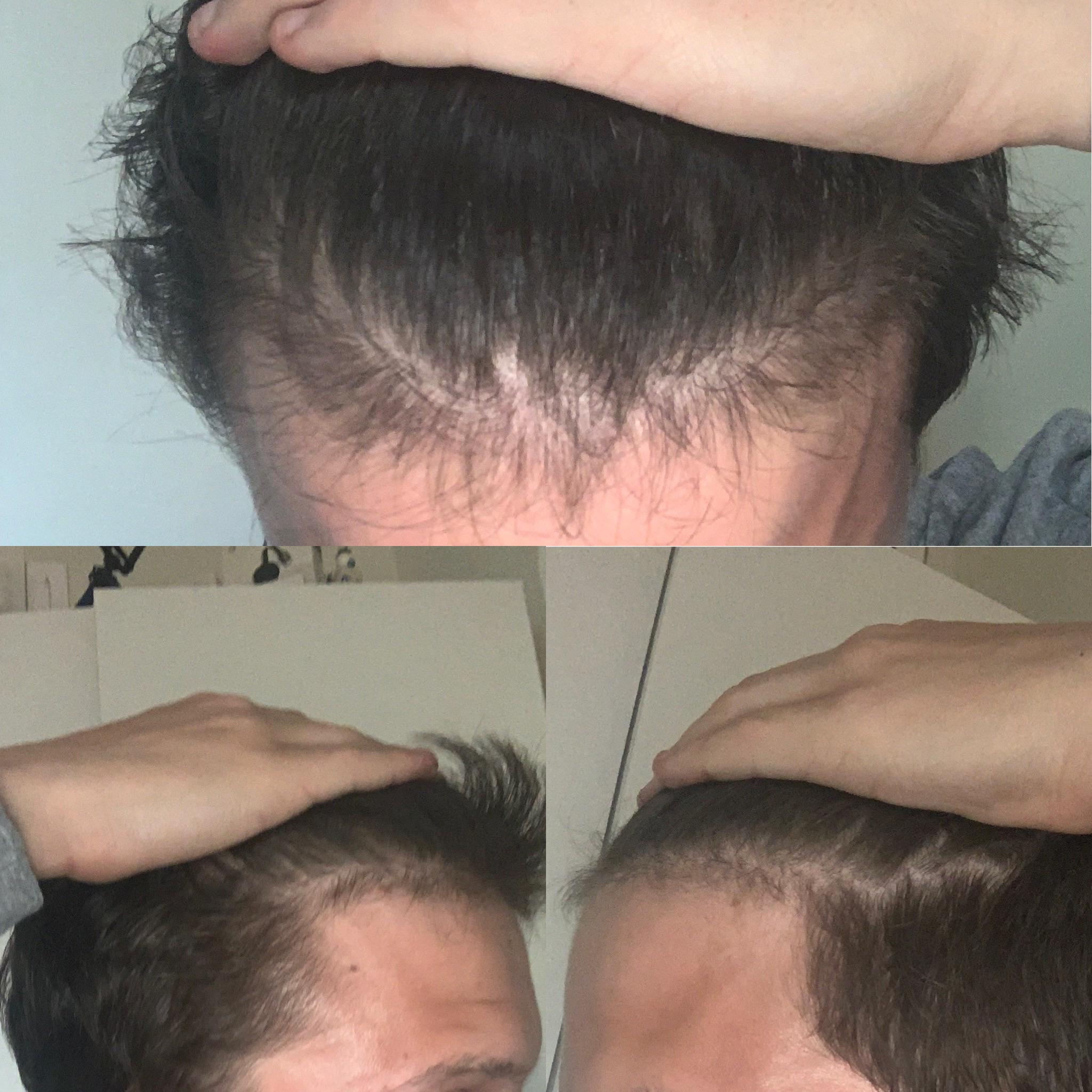
Image source: Reddit
Yes, genetics play a significant role in many forms of alopecia, including androgenetic alopecia (male and female pattern baldness) and alopecia areata. Individuals with a family history of alopecia may have an increased risk of developing the condition.
48. Can alopecia affect other parts of the body besides the scalp?
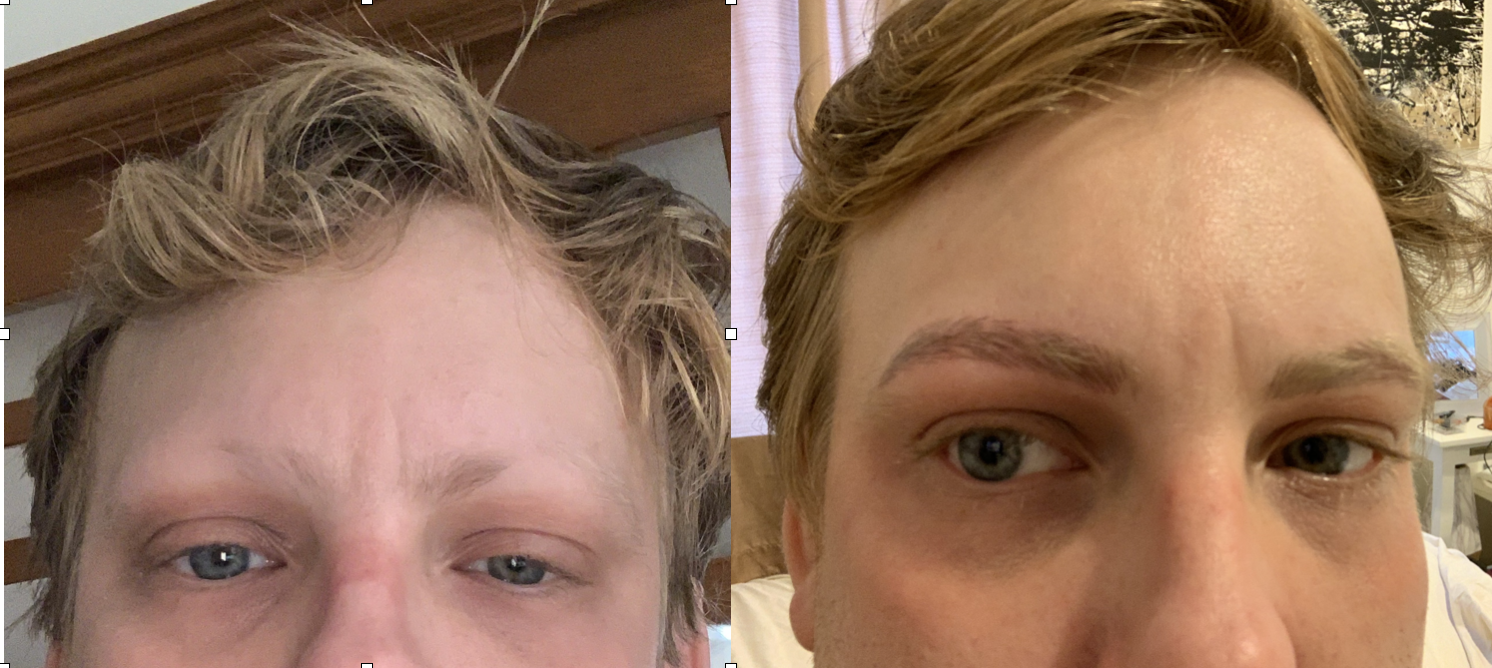
Image source: Reddit
Yes, alopecia can affect eyebrows, eyelashes, beard, and other body hair. Alopecia areata, in particular, may cause patchy hair loss in these areas, leading to changes in appearance and self-esteem. It is as common in males as well as females, especially the sudden loss of hair.
49. Does alopecia only affect adults, or can children also have it?
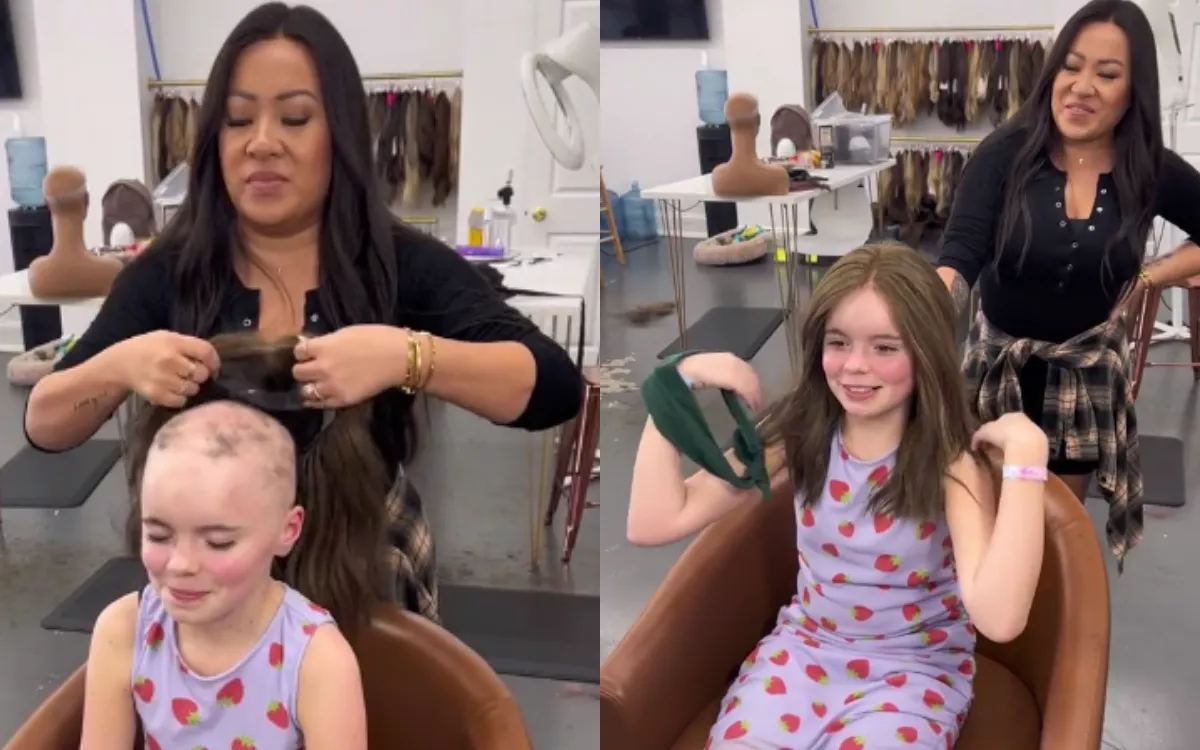
Image source: Reddit
Alopecia can affect individuals of all ages, including children and adolescents. Paediatric alopecia may present with various patterns of hair loss, ranging from localized patches to diffuse thinning, and may require specialized evaluation and management by paediatric dermatologists.
50. How can I support someone with alopecia?
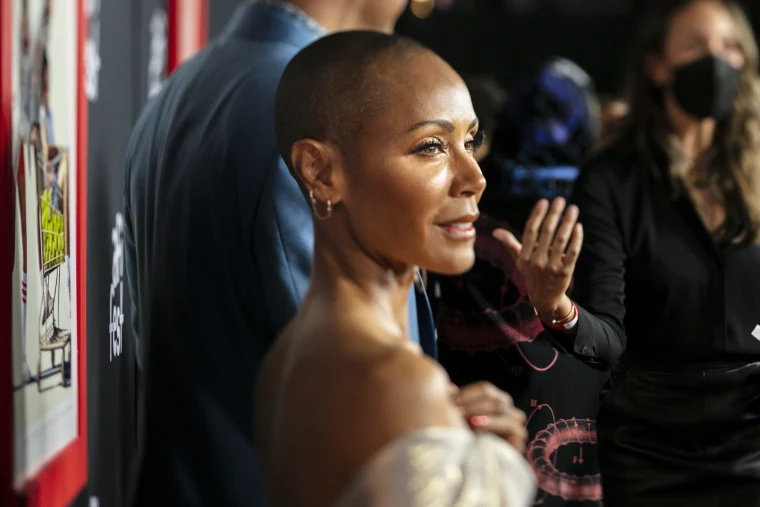
Image source: NBC News
You can support someone with alopecia by offering empathy, understanding, and encouragement. Listen to their concerns, validate their feelings, and offer practical assistance, such as helping them find supportive resources, accompanying them to medical appointments, or participating in hair loss awareness events.

















































